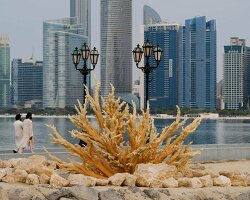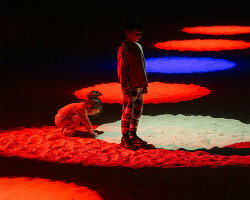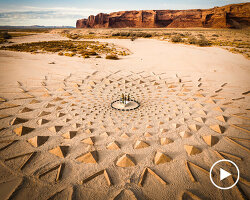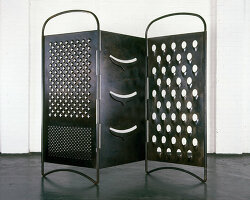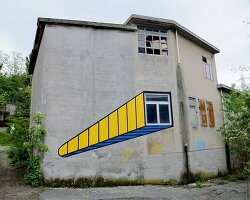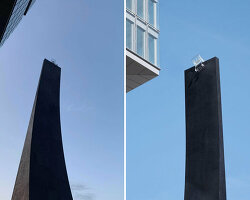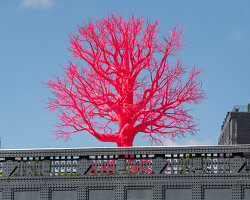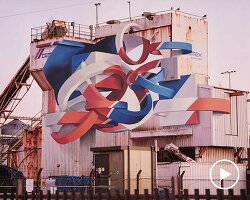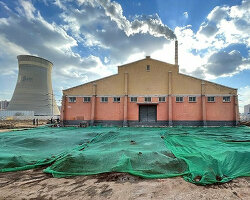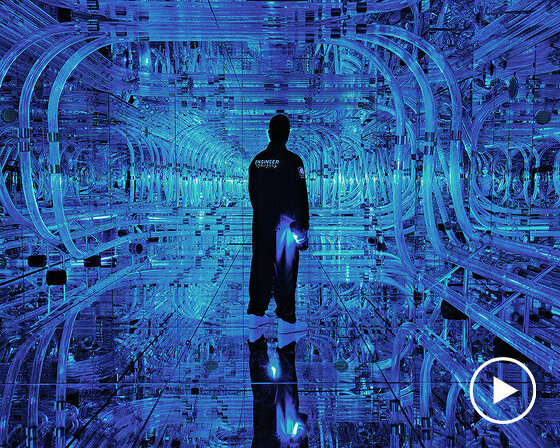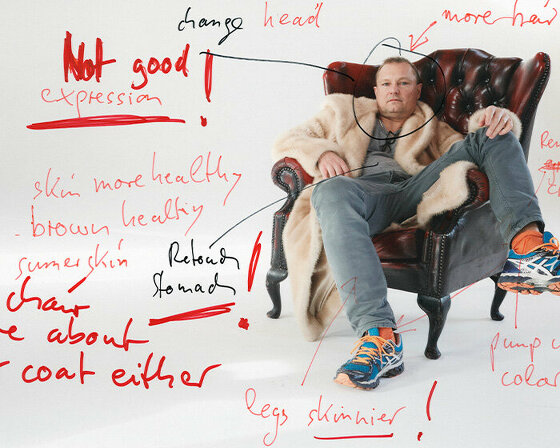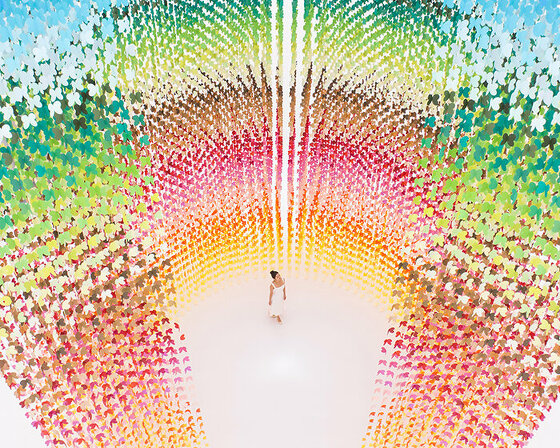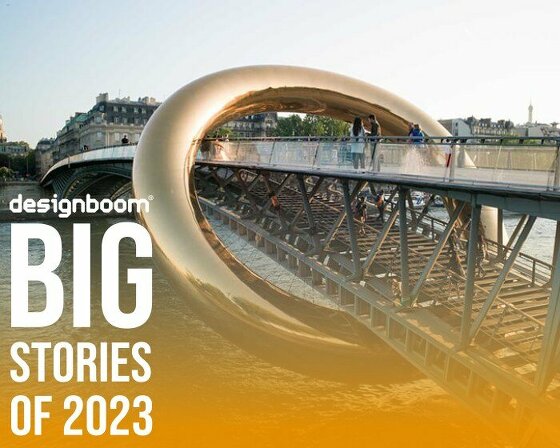Jan Kaláb’s vibrantly colored Artistic Journey
Born in 1978 in Prague, Jan Kaláb is a renowned contemporary artist who gained recognition for his early work as a graffiti artist under the name of ‘Cakes’. He quickly became one of the most prominent members of the Czech and European graffiti scenes, while with his ‘DSK’ crew, they brought the city streets to life, often staying up all night in train yards or even finding themselves in police custody, as they have recounted.
Since the early 2000s, Jan’s art has evolved into 3D graffiti, suspended installations, animated NFTs, paintings, and sculptures, as he ventured into exploring other art forms. His art blurs the line between painting and sculpture, often combining the two. Kaláb’s art is characterized by vivid colors, bold lines, and geometric shapes, while he is particularly known for his signature ‘bubble’ style, which involves creating three-dimensional shapes that appear to be floating on the surface of his artworks.
Although some of his pieces may resemble a particular shape, Jan has mentioned that he never intends to replicate existing images or narratives. Instead, he seeks to discover universal beauty in an unseen and novel perspective, transforming the known into the unknown and a new dimension. The Prague-born artist aims to create a sensation of déjà vu, reminiscent of remembering a special moment or melody. He strives to resonate with his audience and evoke that ultimate feeling.
Jan Kaláb’s artistic oeuvre is a perpetual quest for beauty in diverse forms and shapes. ‘Creating art is about searching and discovering new ways beyond what you already know,’ Kaláb told us. His work is held in private collections and public institutions around the world, including in New York, Miami, London, Paris, Shanghai, and Rio de Janeiro, and he continues to inspire and influence a new generation of artists. designboom had the opportunity to speak with the artist himself, delving into his artistic processes and creative vision. Read our conversation in full below.
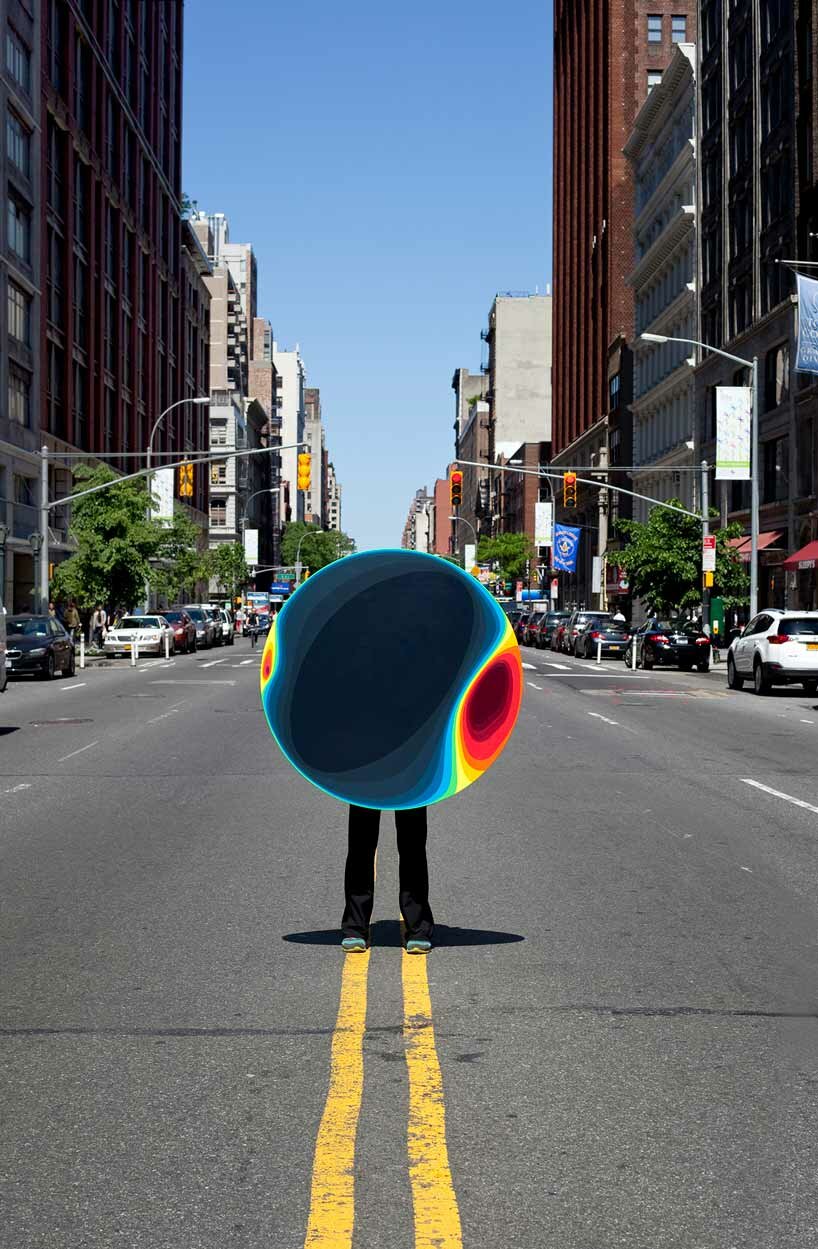
2014 Left vs. Right, 23rd str NYC, photo by Jan Kaláb Studio
header video © Volta Pollak
interview with Jan Kaláb
designboom: Can you tell us about your journey from being a graffiti artist to creating 3D graffiti, sculptures, paintings, and suspended installations? What inspired you to explore these new mediums?
Jan Kaláb: I’ve been drawing since I was a child. With graffiti came the real passion to create during my teenage years, of course, it brought some troubles, but I’m pretty sure it also kept me away from much more serious ones. After doing it for many years, I felt I had to evolve that medium and break away from just the one technique of spraying with a spray can, so I developed my 3D graffiti in different sizes and with materials. This perspective of thinking about letters/words in a new way opened up the realization of the need/want of abstraction in my work. At first, I created murals which were not letters, then it led me to painting on canvas and my first gallery shows.
After that, I began to think about paintings, in general, and I started to build my own stretcher frames, so the 3rd dimension was added to my work; my paintings started to morph into sculptures. Creating art is about searching and discovering new ways beyond what you already know. Each technique brings a new perspective and influences the other one, and I’m always seeking my next steps forward in my artistic journey and experiences.
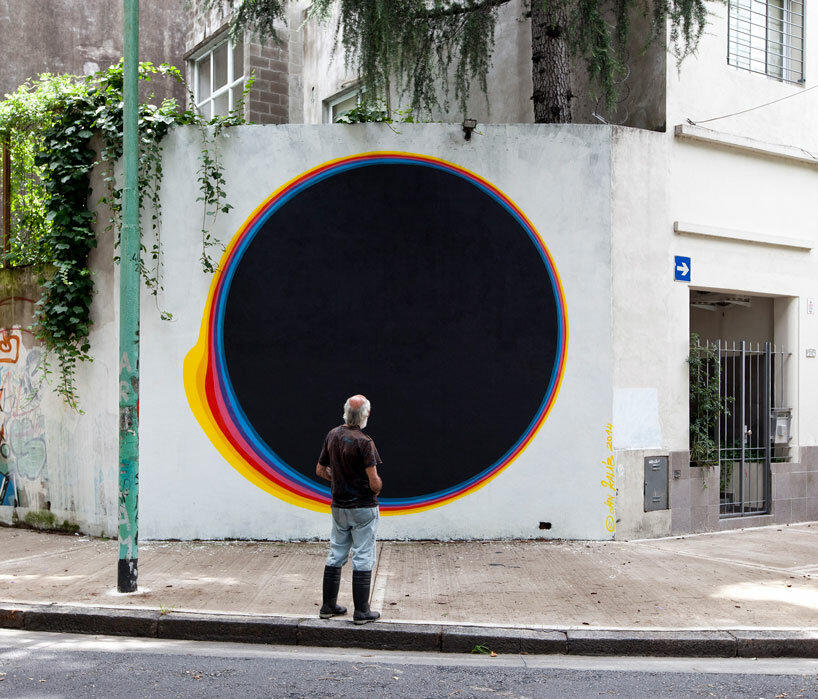
2014 Black hole, Buenos Aires, photo by Jan Kaláb Studio
from sculptures and installations to paintings, street murals and nfts
DB: Your 3D graffiti pieces are intricate and often incorporate vibrant colors. Can you walk us through your creative process for bringing these pieces to life?
JK: Well, it’s been ten years since I last was doing 3D graffiti, and it was always based on five letters POINT (the graffiti name). Letters are the skeleton for building up the composition and the sculpture. It can be made in various materials, which of course, affect the final shape. The piece looks different if it’s made out of plywood or made from styrofoam or gypsum. Since the graffiti pieces are ephemeral, I always use cheap or used material. Nowadays, I try to create sculptures that are more durable and that are much more challenging. Also, creating an abstract form is much more difficult than just the same scheme of repeating the five letters.
DB: Your suspended installations create stunning visual effects and interact with their surroundings. How do you approach the design and installment of these works?
JK: When I had painted on walls outside, I always looked around me and tried to fit the piece in its surroundings organically. It was, maybe, a little bit of architectural thinking, which I studied for a short while, so that is the influence, but it was important to me wherever any of my pieces were that they fit, and that was what I was keeping in mind while I’m creating it.
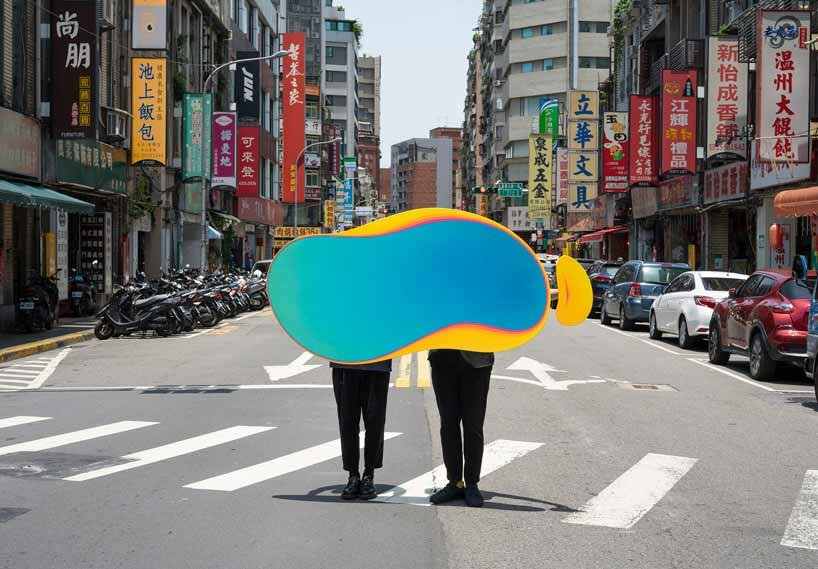
2019 Yellow Medusa Chang, Taipei, photo by Jan Kaláb
DB: You’ve recently ventured into the world of NFTs with your animated pieces. How has this new medium challenged or expanded your artistic practice?
JK: It was the next impulse and the next natural venue, which made me think again about my art from another perspective. Even though I always imagined my paintings in motion, this was another real push for me to really make it happen and evolve again. So, I teamed up with some animators, and together, we created a few animated paintings. This venture also brought me to AR and creating work in the context of virtual moving sculptures. I’m amazed
by all the possibilities, and I’m surprised by how many challenges and options exist, but that is what creation is all about.
DB: Your art exists in both outdoor and indoor spaces. How do you navigate creating works for galleries versus those for public spaces?
JK: In the indoor works, I have to pay extra attention to every detail because you see and inspect all the minuscule details up close. In my minimal works, any imperfection of the execution would disturb the viewer. The size is usually decent. The outdoor installation work should be big enough, and a little imperfection could be forgiven. But outdoor sculptures must have it all – detail and size. This is the real challenge!
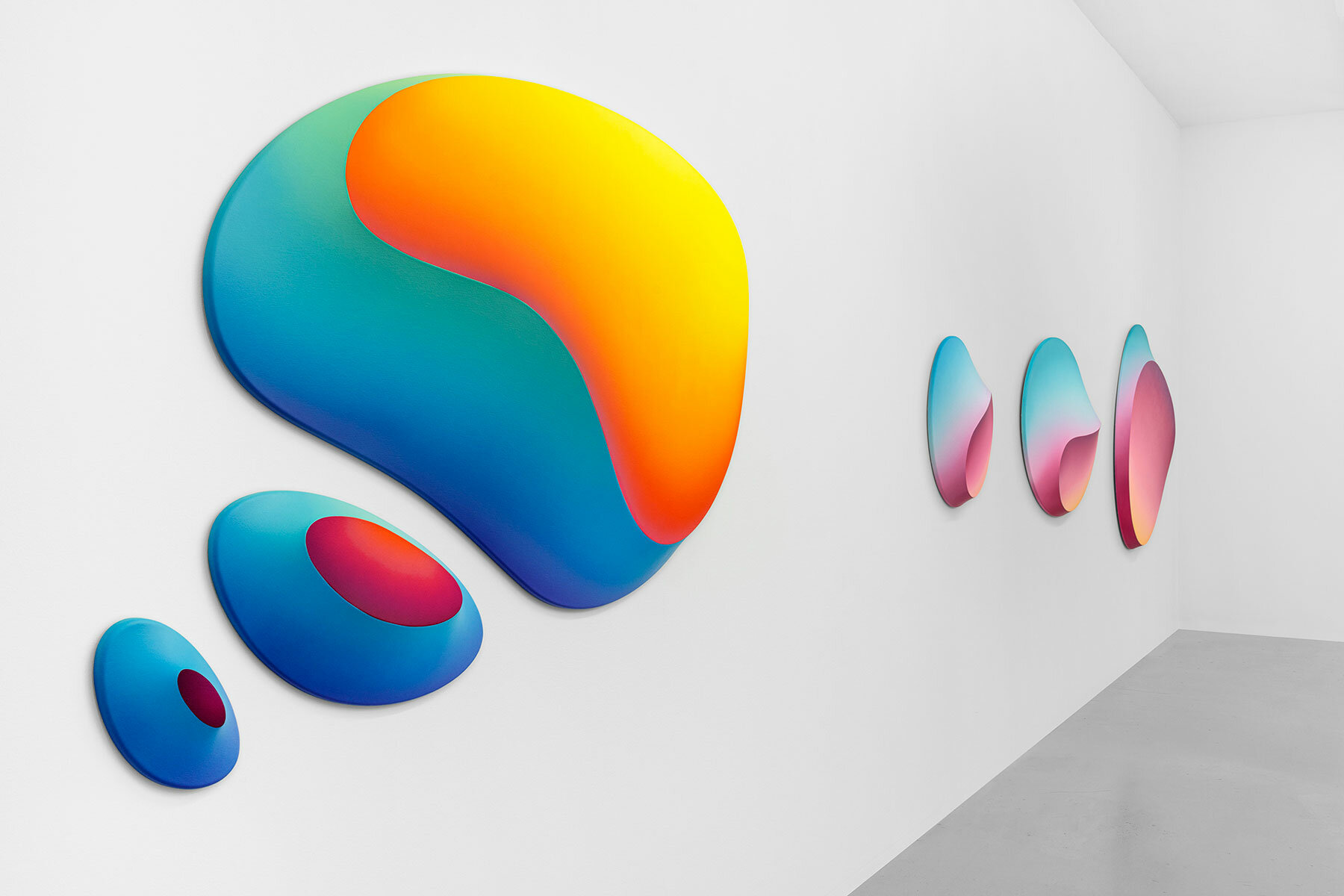
2022 MIRAGE, Castanier Gallery, Miami, photo by Michael R Lopez
searching the beauty in different forms
DB: Many of your pieces incorporate geometric shapes and bold patterns, and colors. What draws you to these forms, and how do they contribute to your overall artistic vision?
JK: I developed this method, language, if you will, over time. Years back, looking at letter intersections in my 3D graffiti made me think in just simple geometric shapes. By painting these chaotic shapes, they became more and more organized until I simplified them into a square and/or a circle. After some time, I decided to take a circle as the only subject. So, what you see in my recent works are basically variations of the circle and what it could represent. Inside VS outside world, planets, atoms – once it gets imperfect, it becomes an organic cell or magnetic field.
DB: Your work has been exhibited all over the world. Is there a particular location or environment that you find especially inspiring to work in?
JK: Well, I don’t consider one place more inspiring than the other. It is more about soaking in all these different types of environments where I have been into myself and to be able to then create my art in a universal language as much as possible. And to work in my home studio is the most convenient and comfortable for me because everything is set up there, and my space allows me to focus and get help from my assistants when I need it.
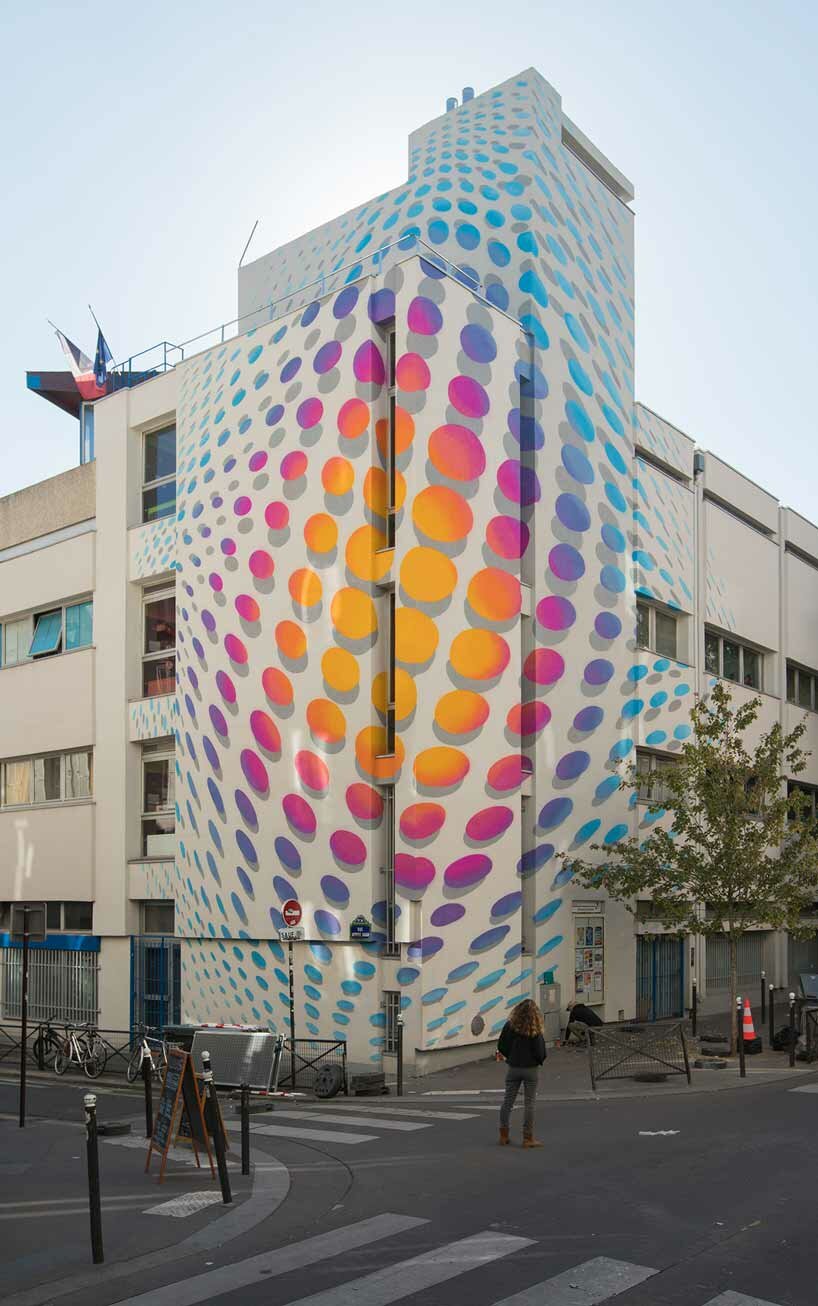
2021 Vibrating Corner, Paris, photo by Jan Kaláb Studio
DB: As an artist who has experimented with many different mediums and platforms, what advice would you give to other creatives who are looking to expand their artistic practice beyond traditional forms?
JK: Once you find your own artistic language, it can be transferred and translated into any other new medium and influence your future works. And, if you are still searching for your artistic voice, try as many techniques or mediums as you can because you can be surprised by what you will find and the key to the next door that will lead you to your own originality.
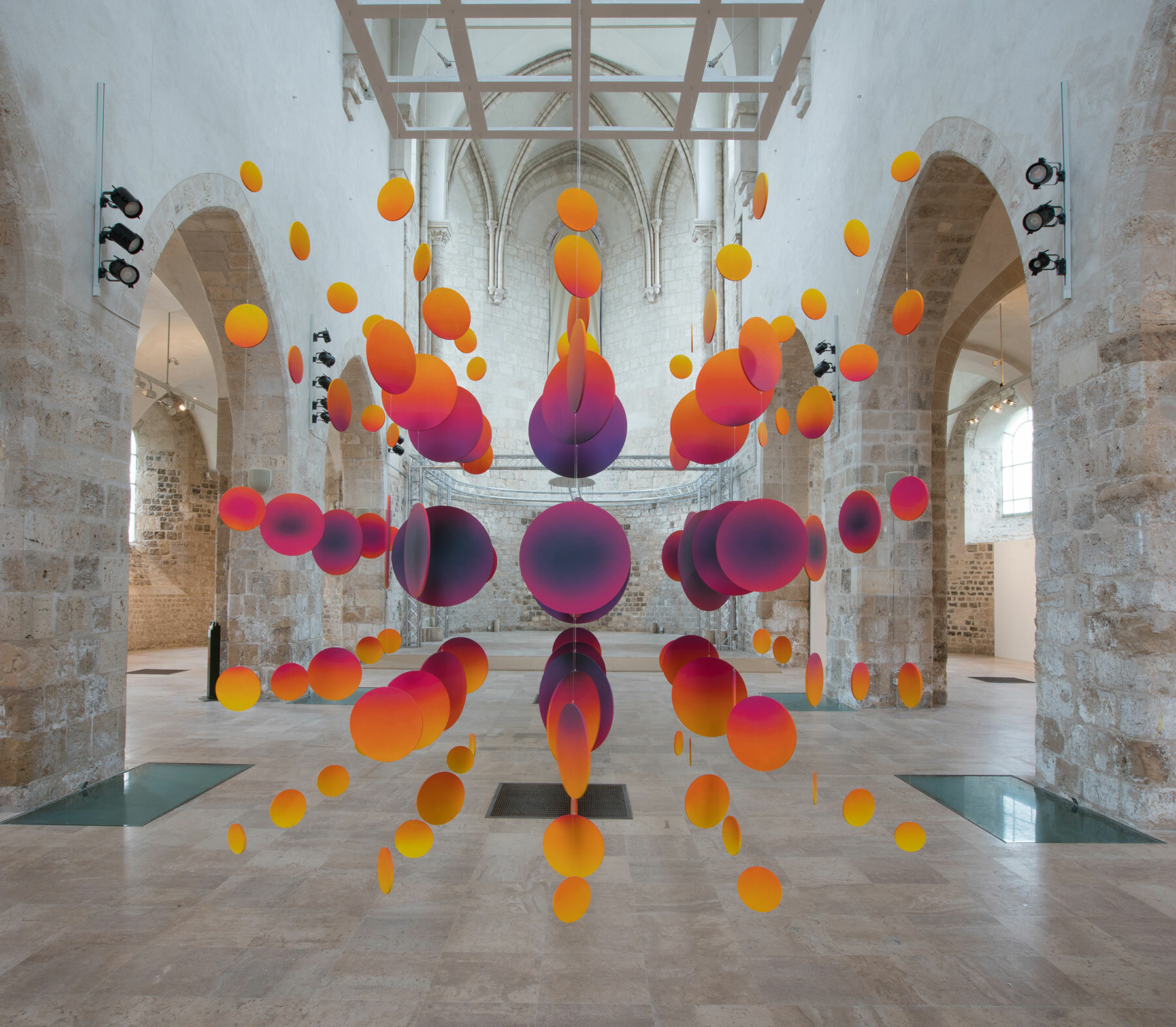
2021 Zone of Mystery, Orleans, photo by Jan Kaláb Studio
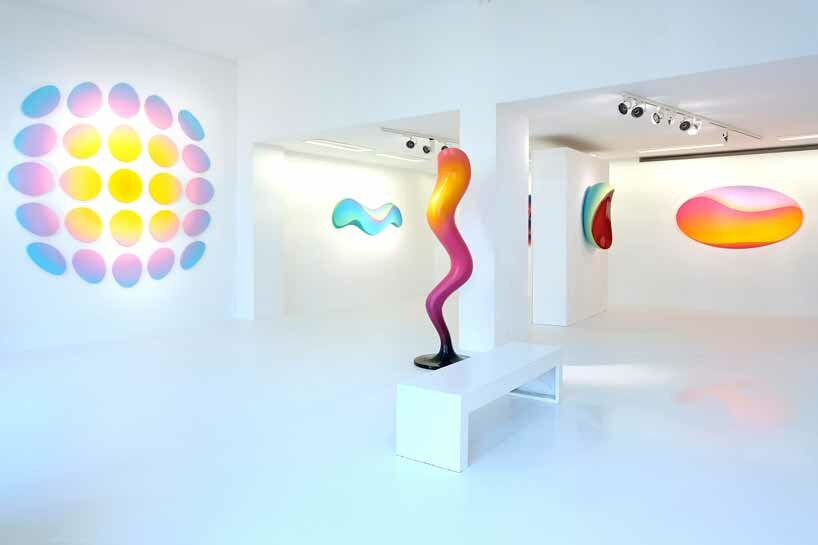
2021 Cosmic Spring, Macadam Gallery, Bruxelles, photo by Macadam Gallery
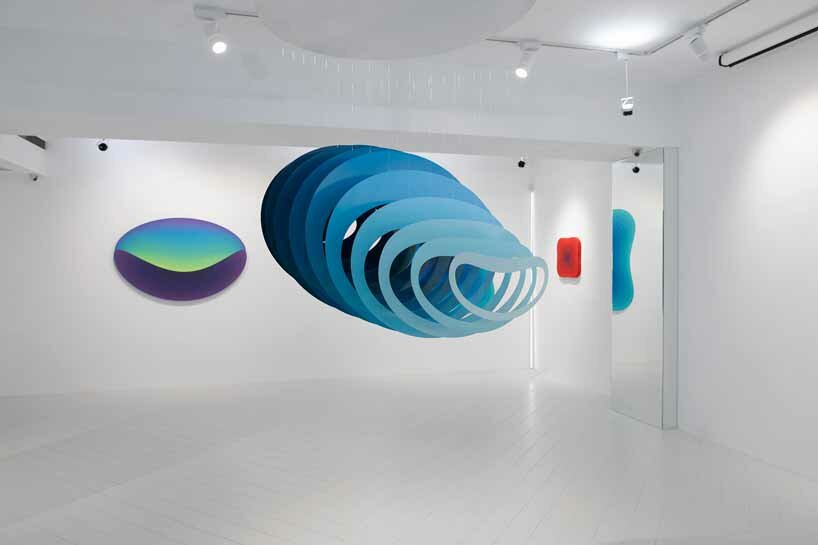
2023 Blue Horizon, Bluerider Gallery, Taipei, photo by Bluerider Gallery
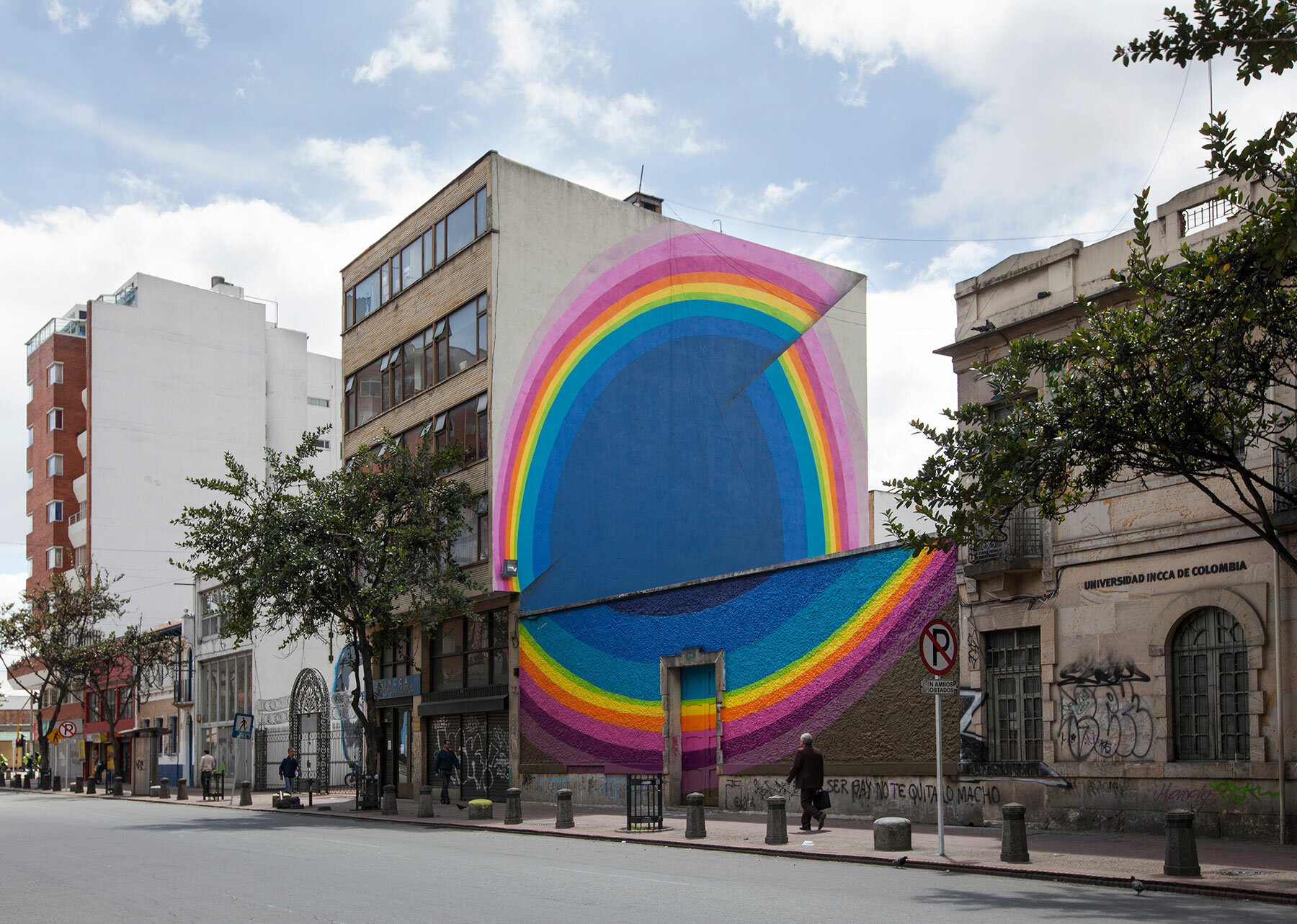
2016 Broken Rainbow, Bogota, photo by Jan Kaláb studio
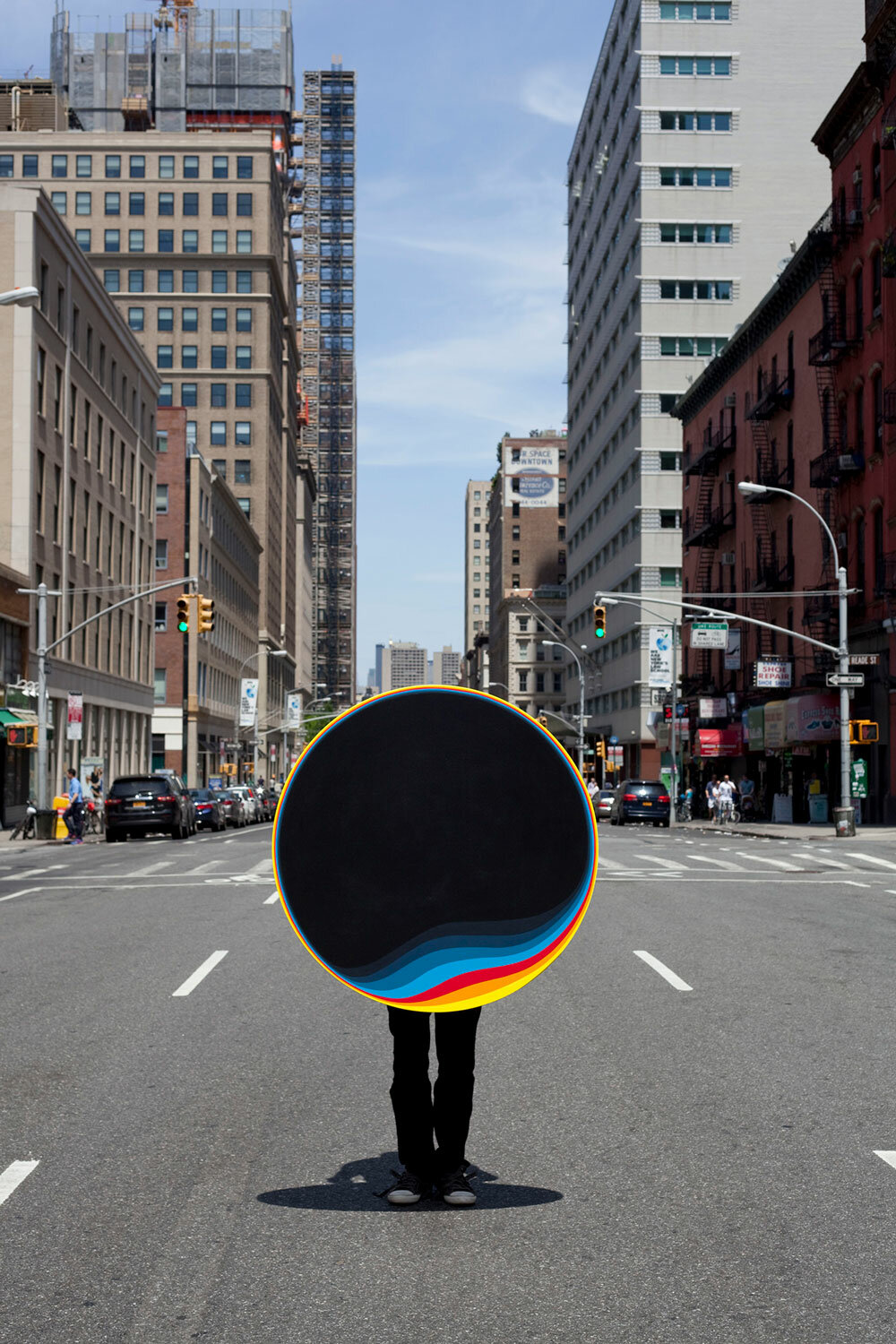
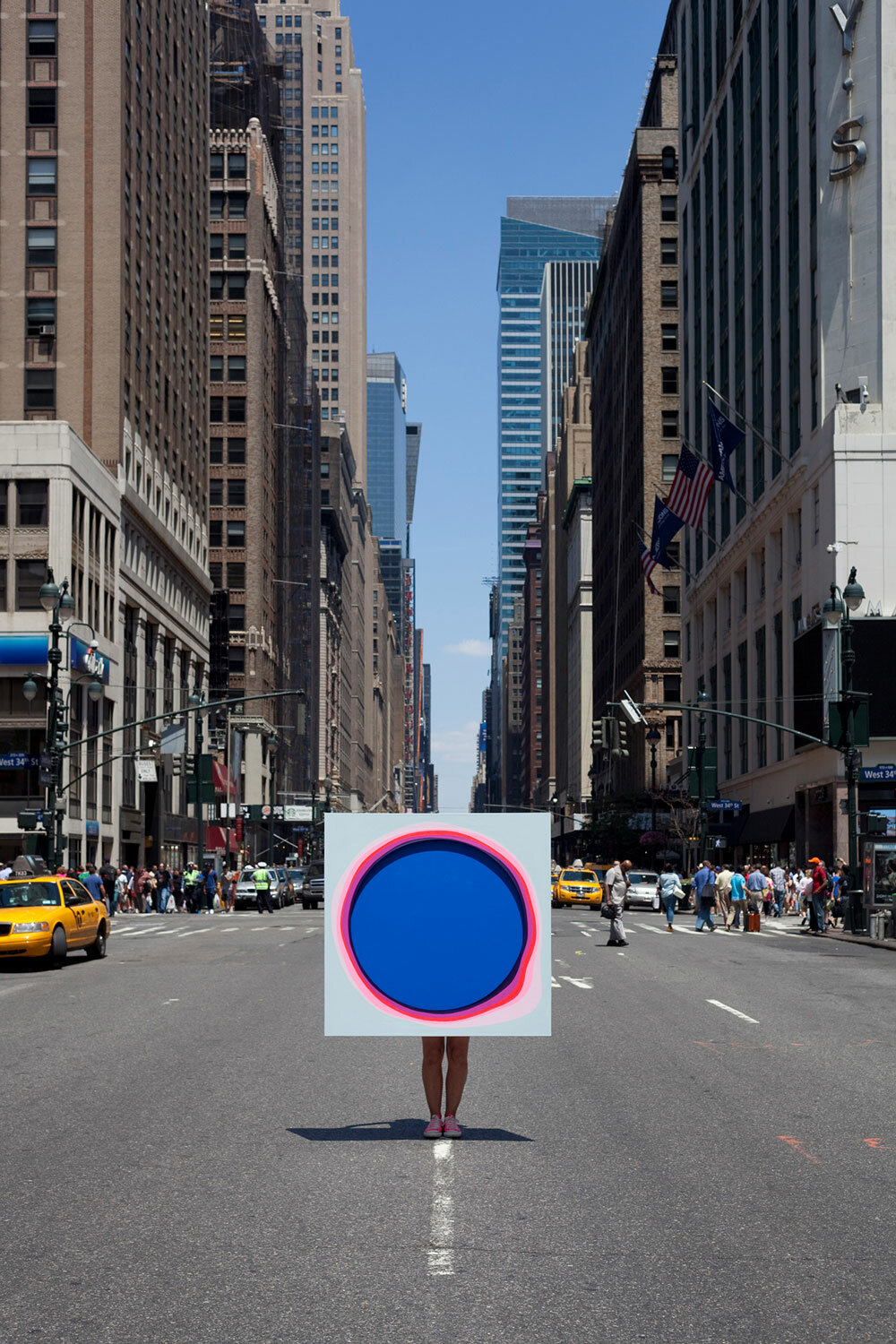
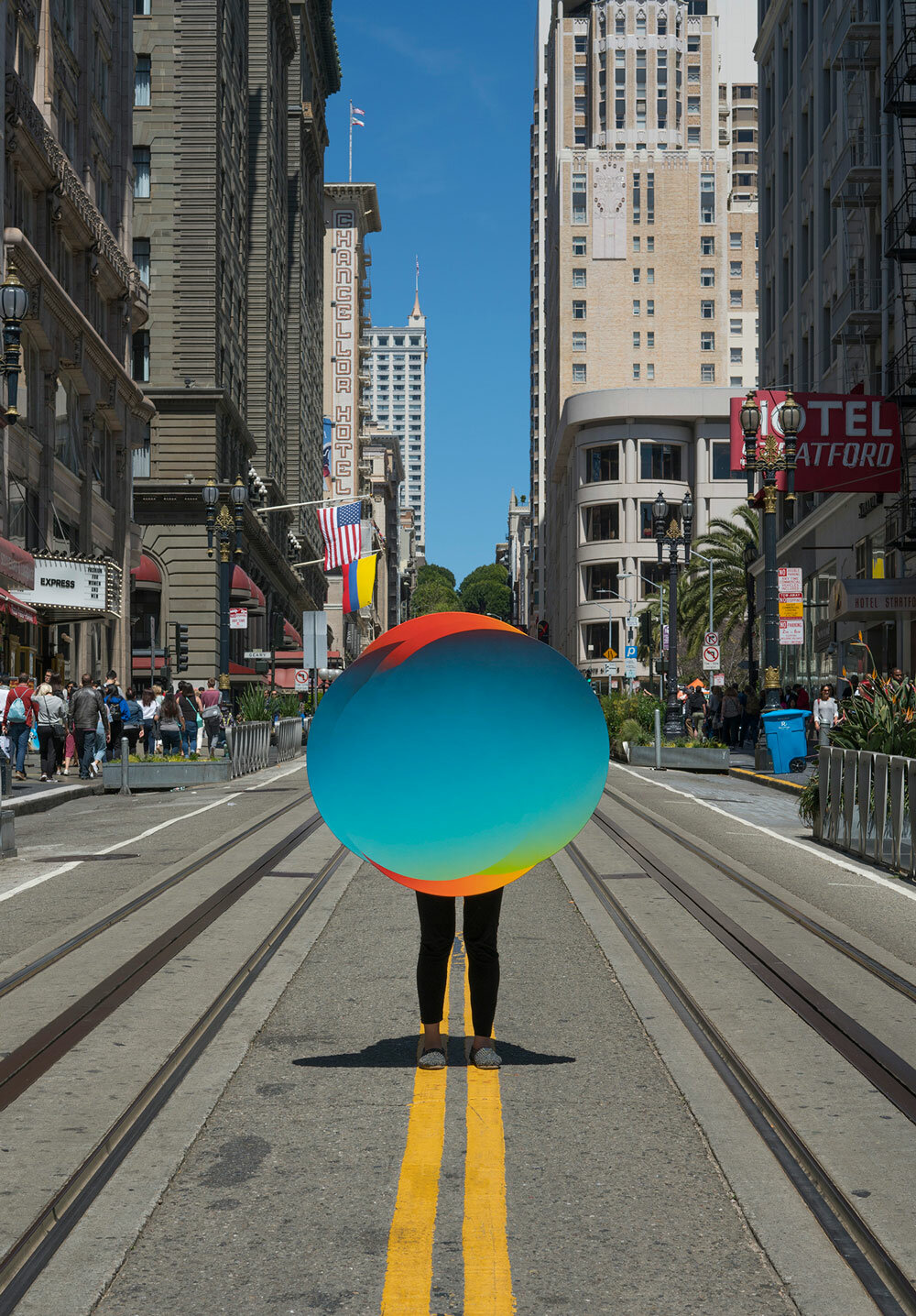
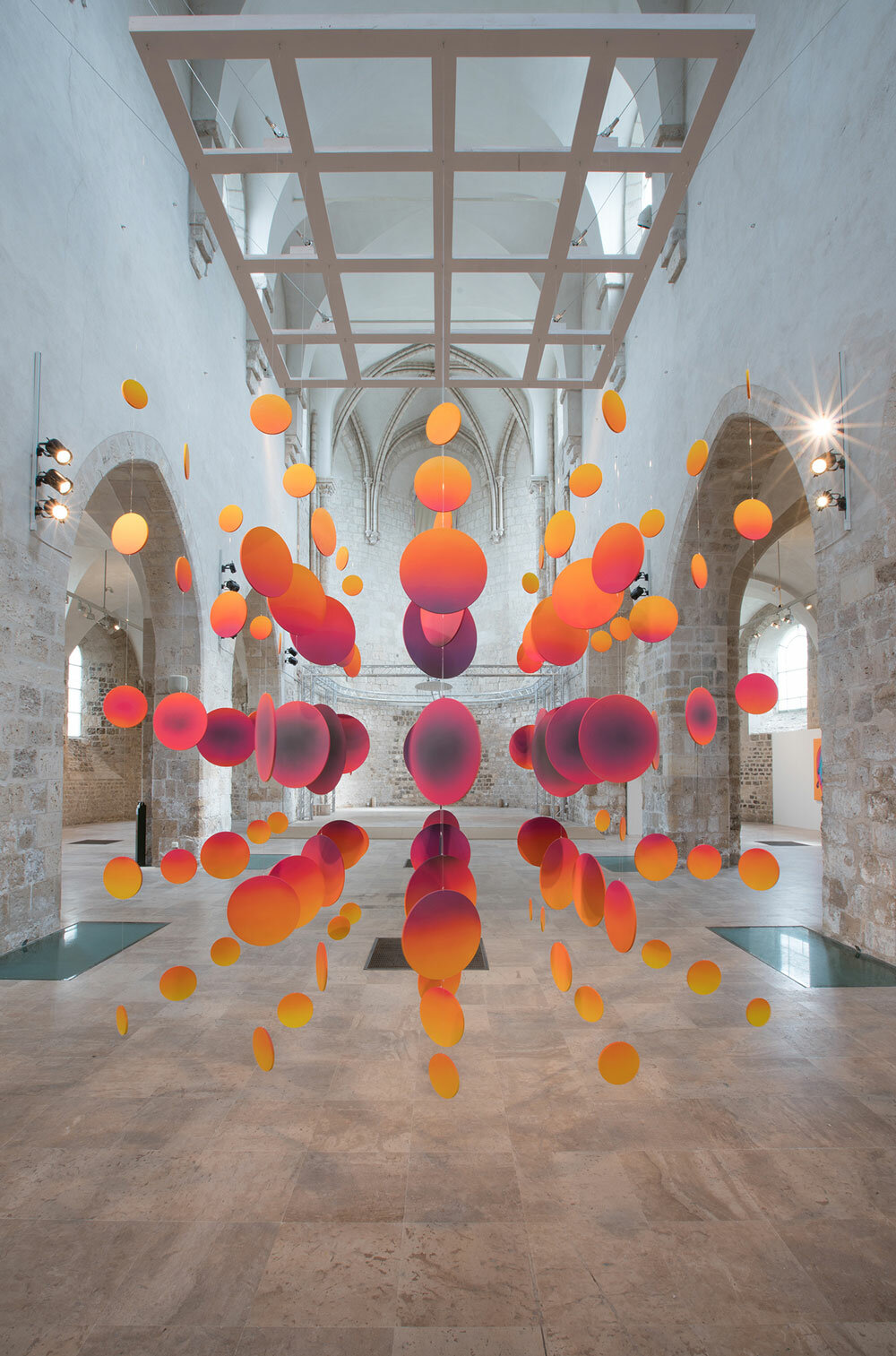
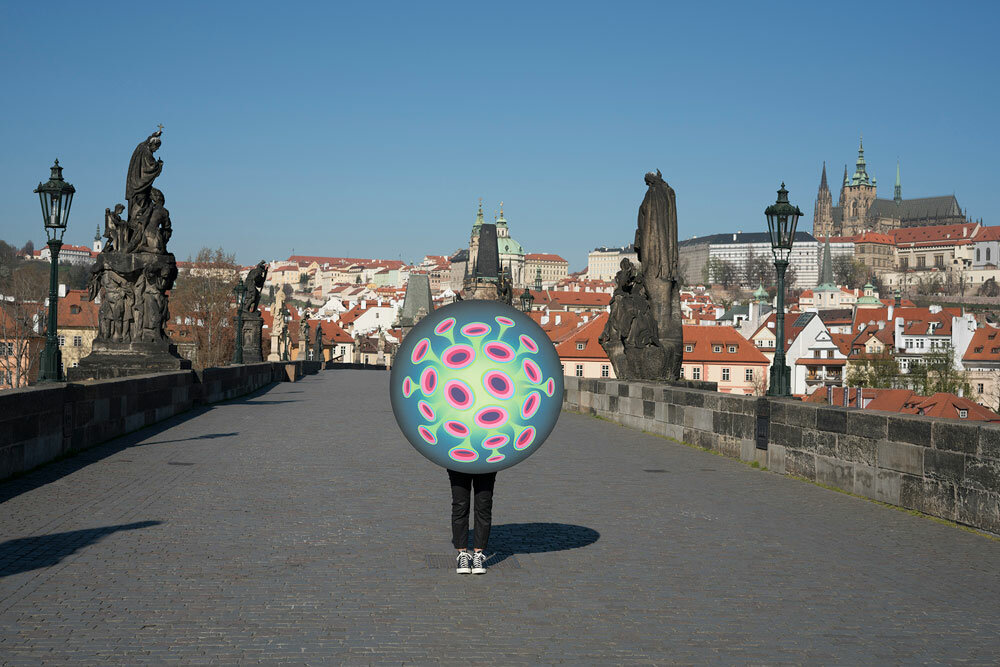
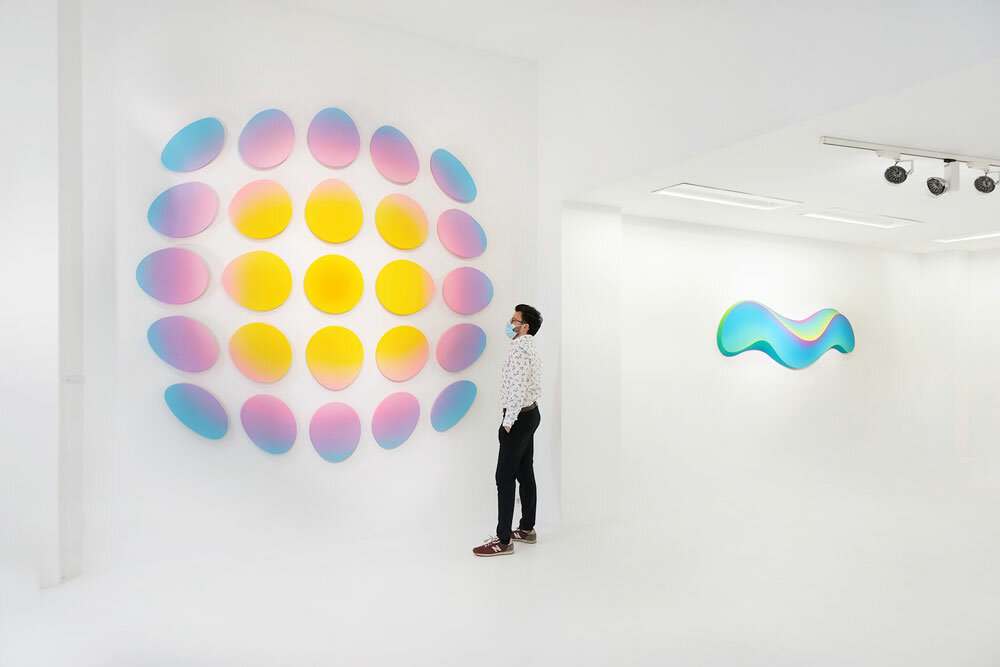
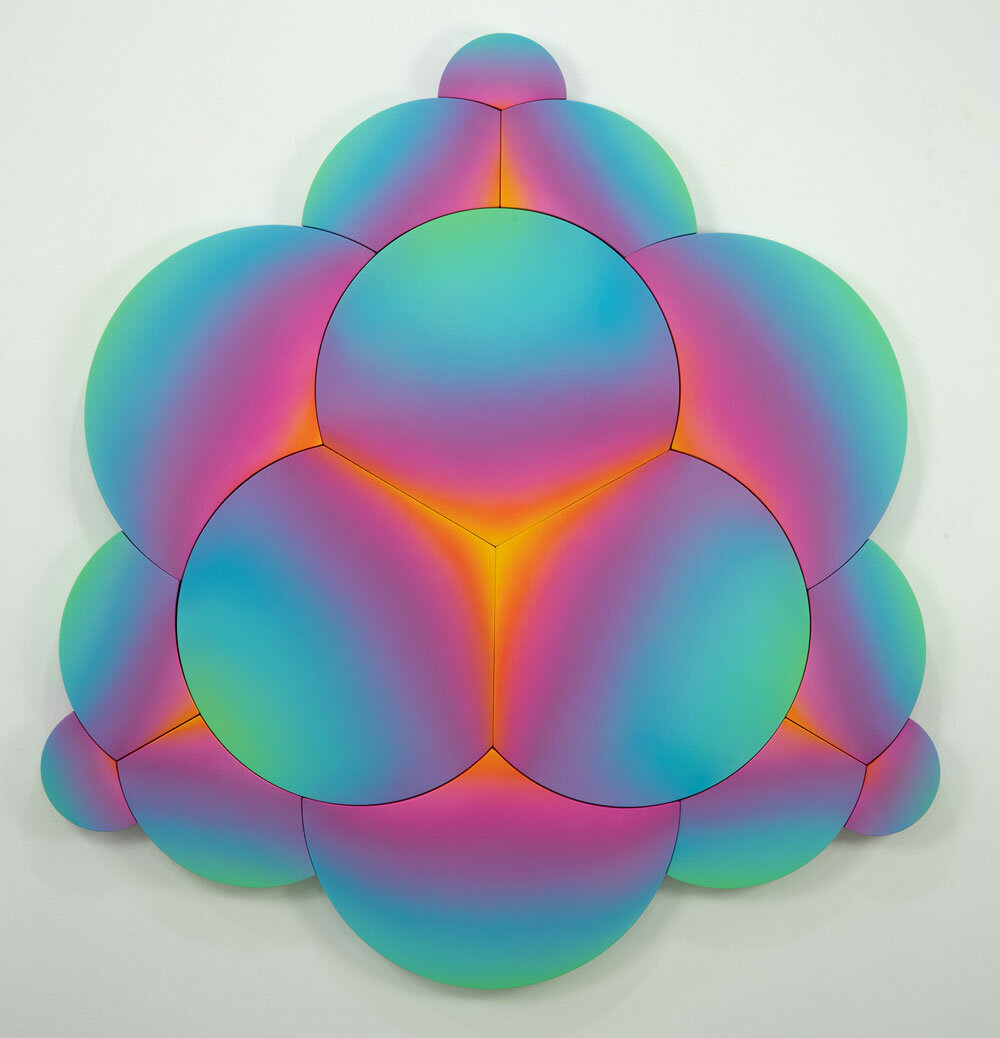
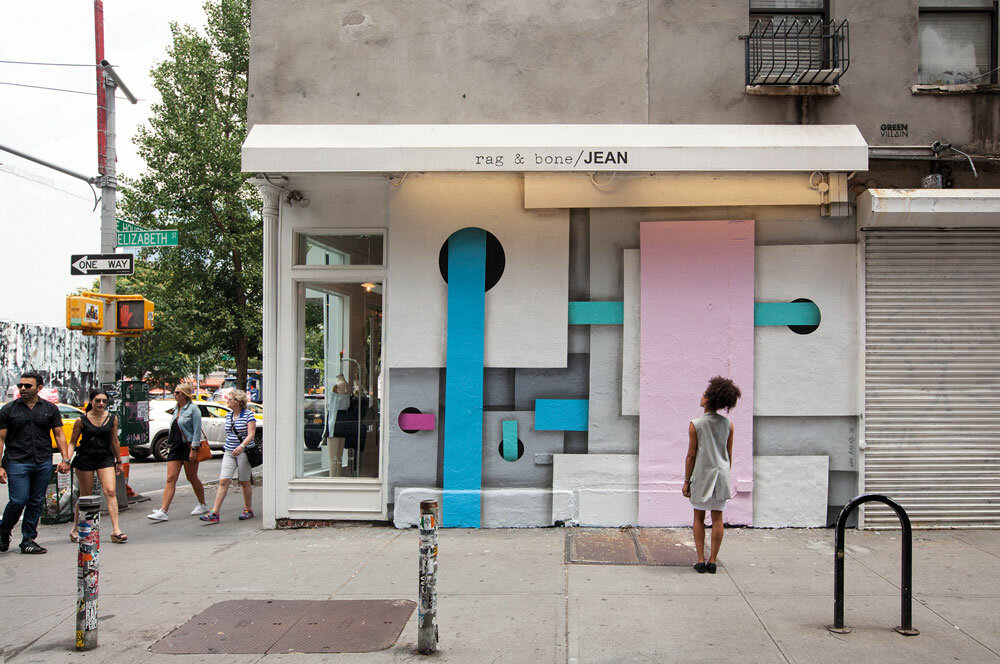
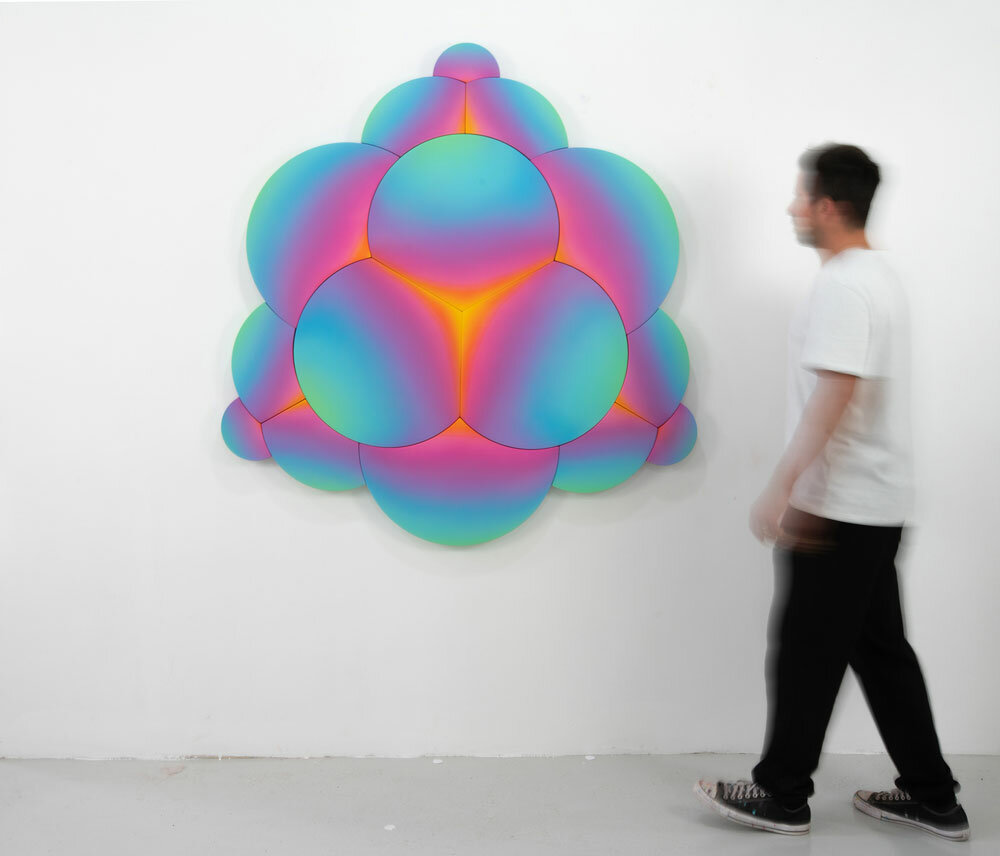
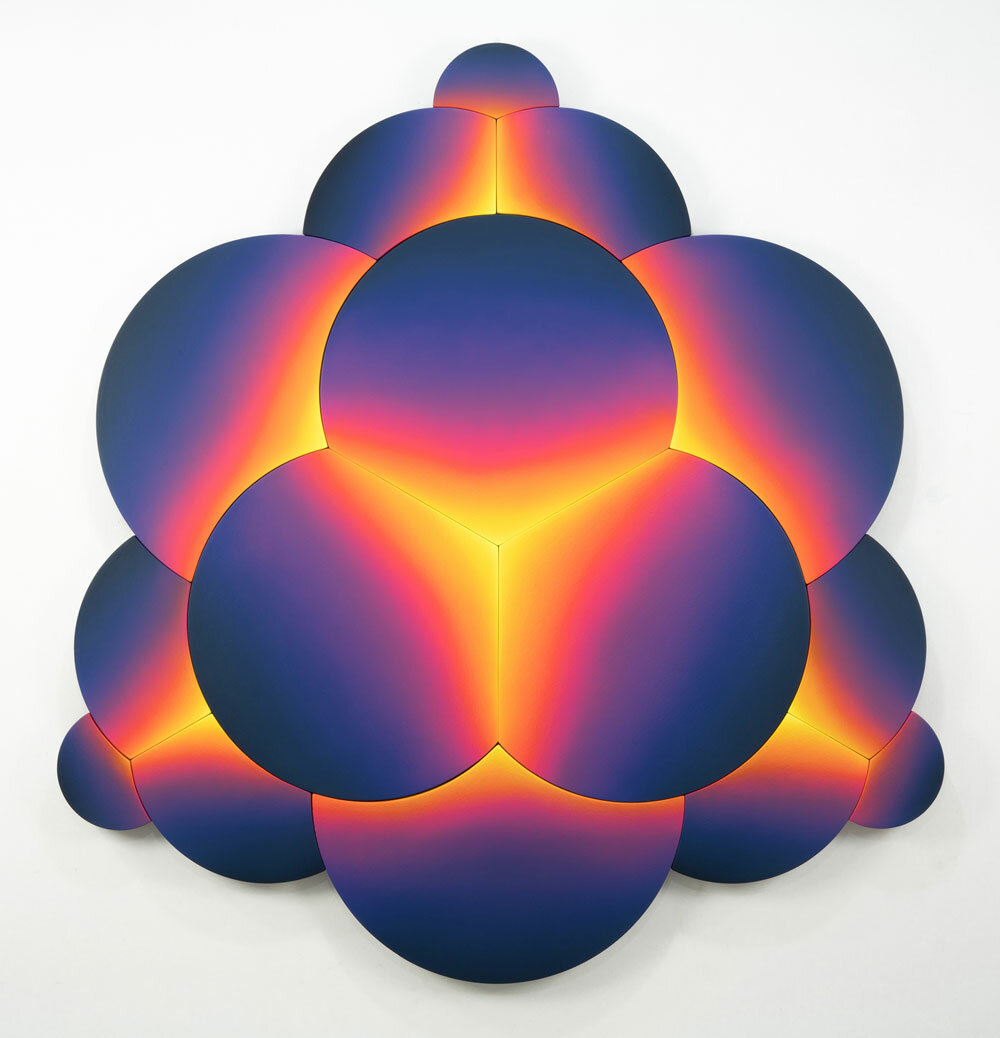
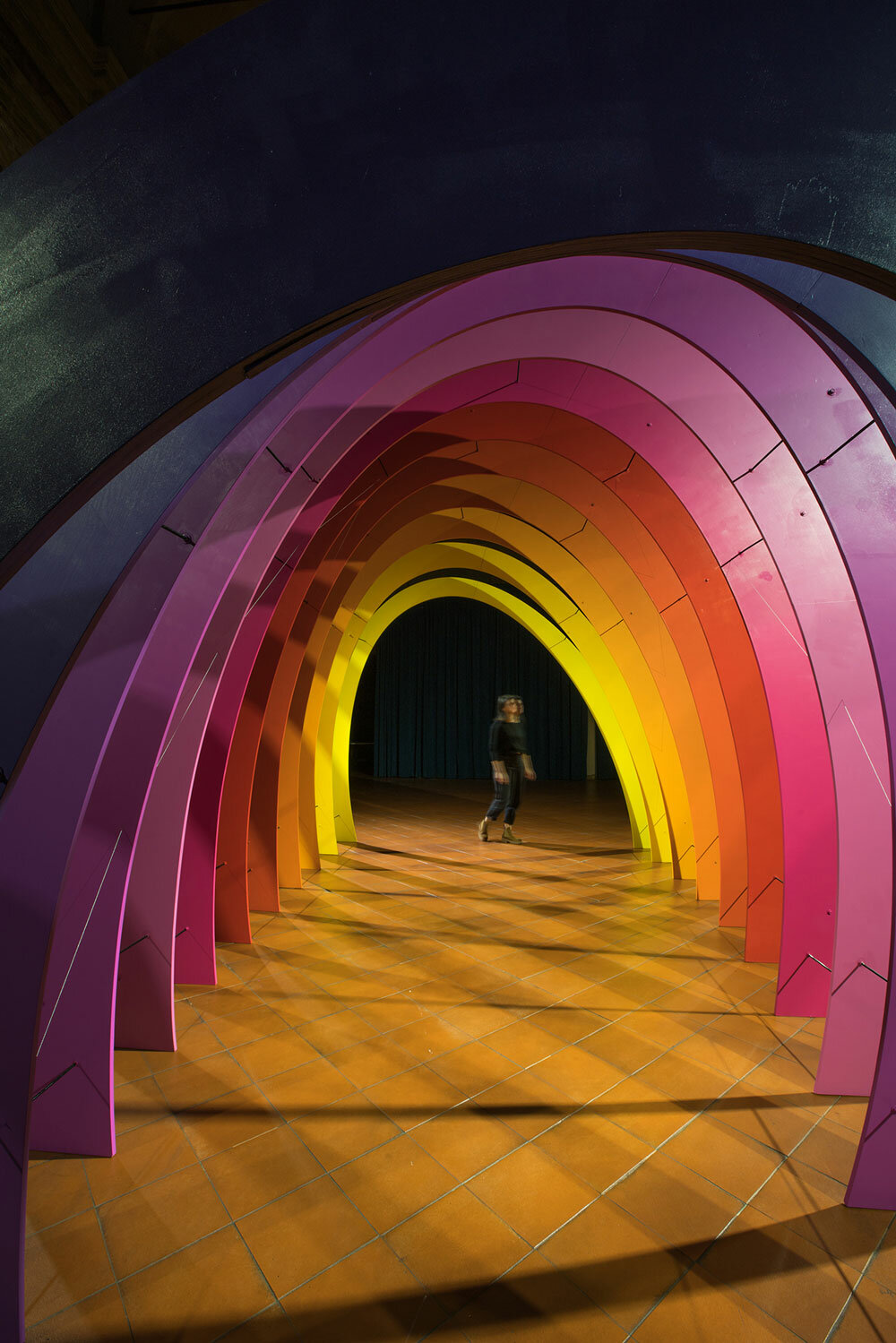
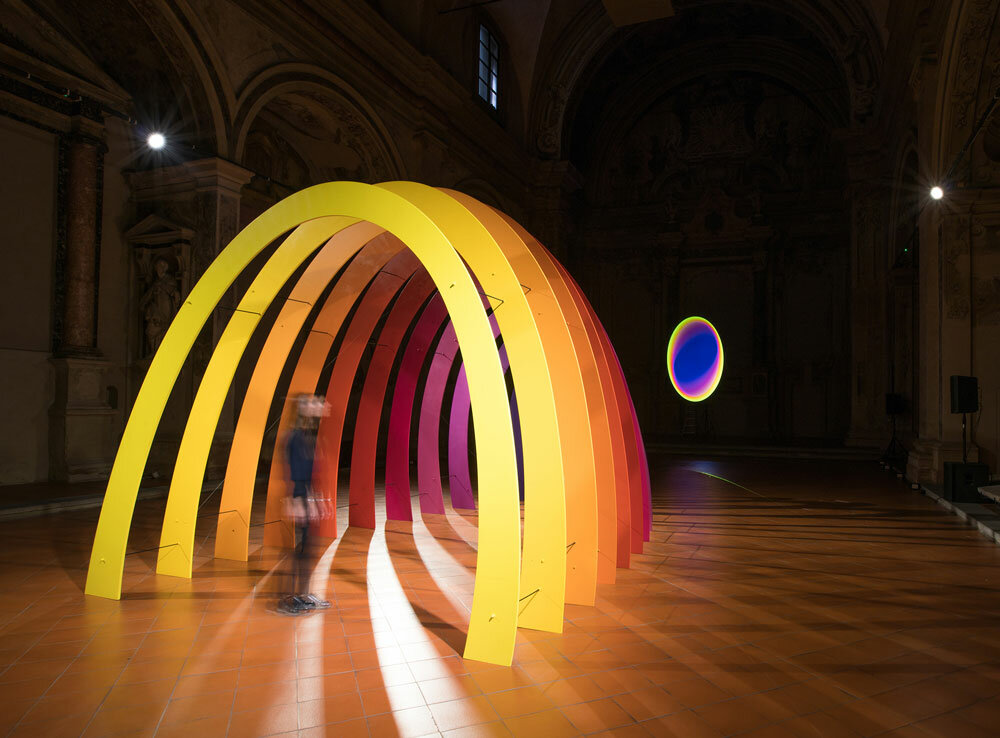
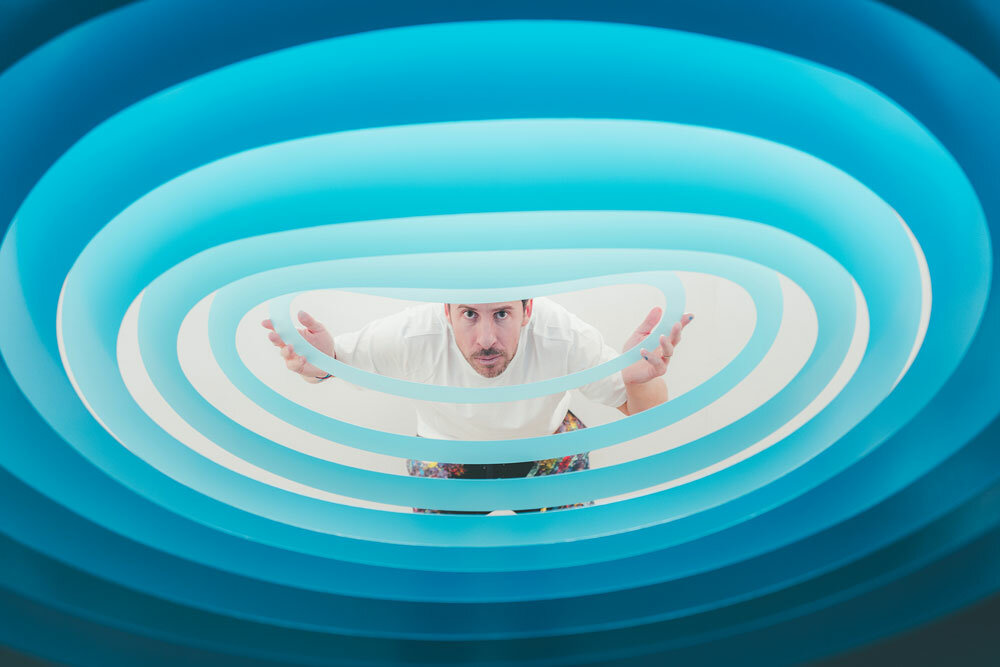
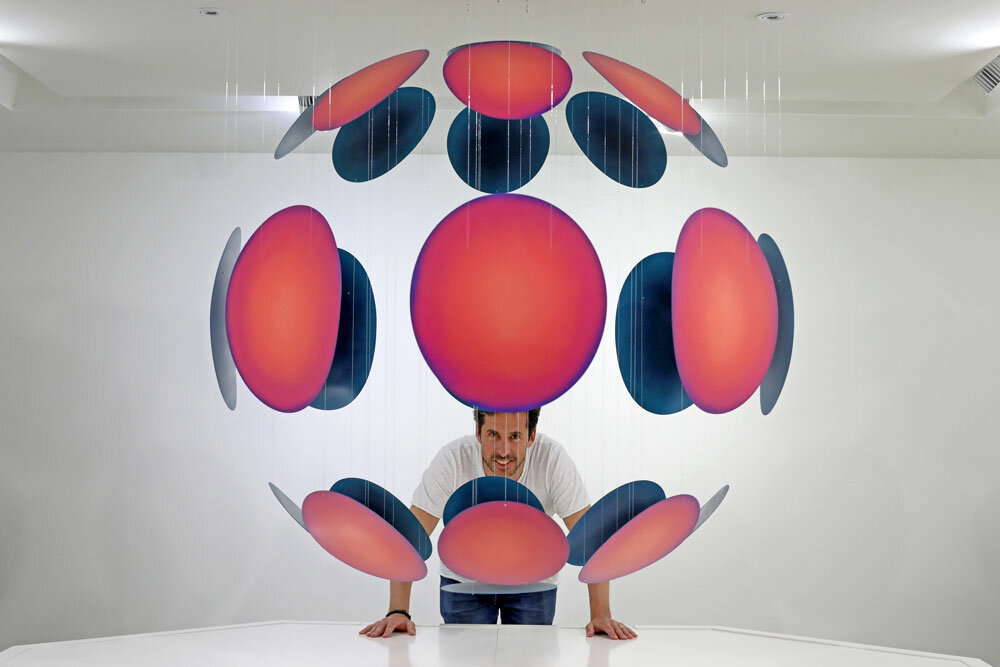
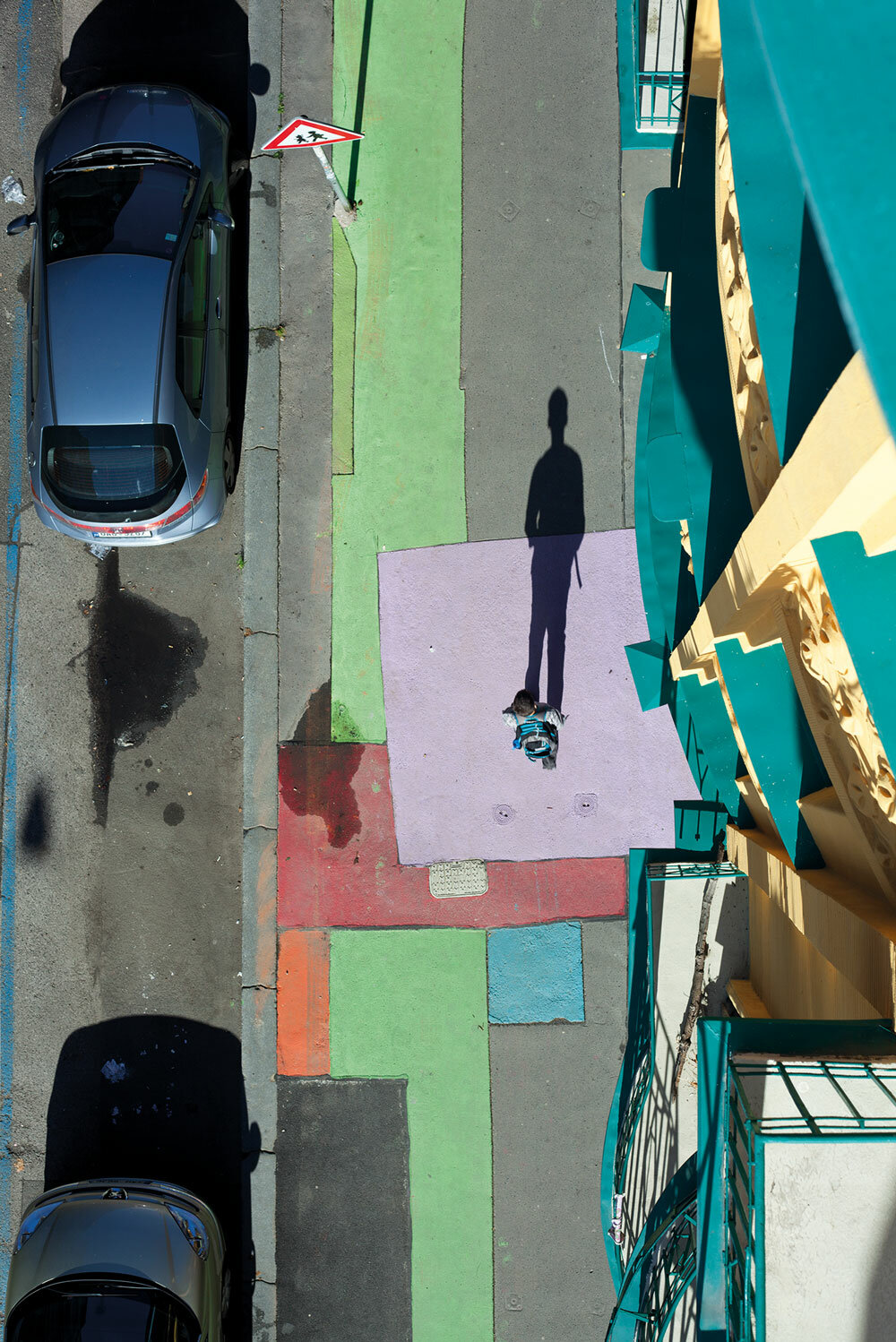
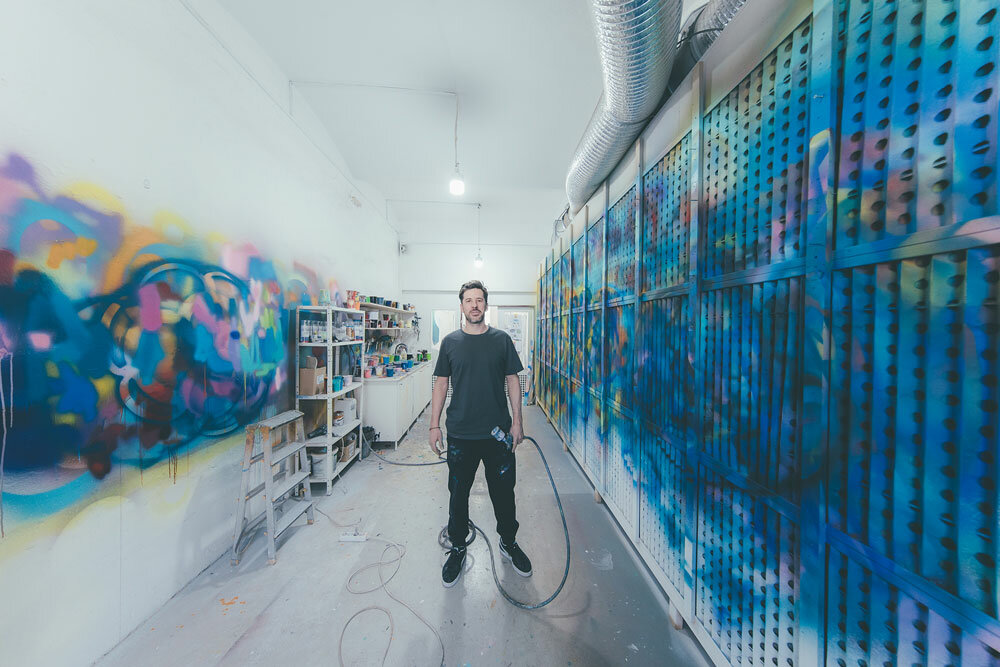
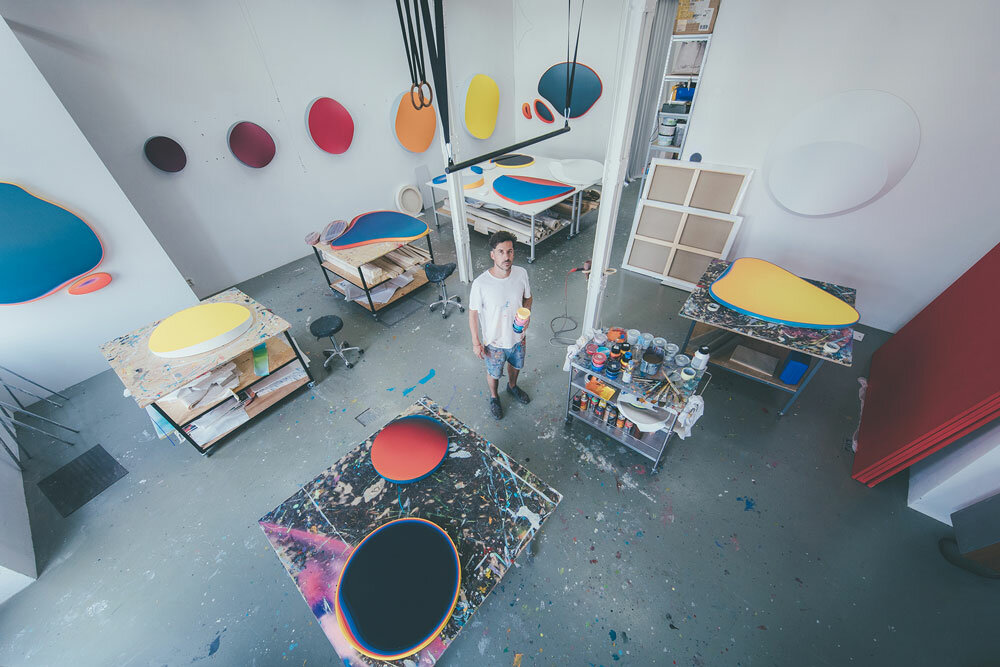
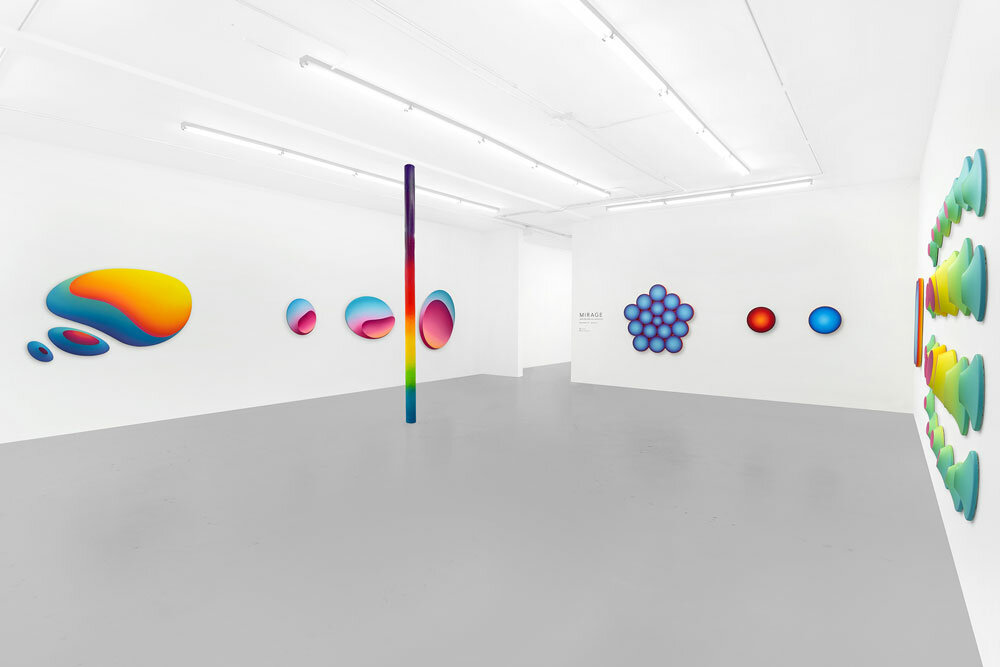
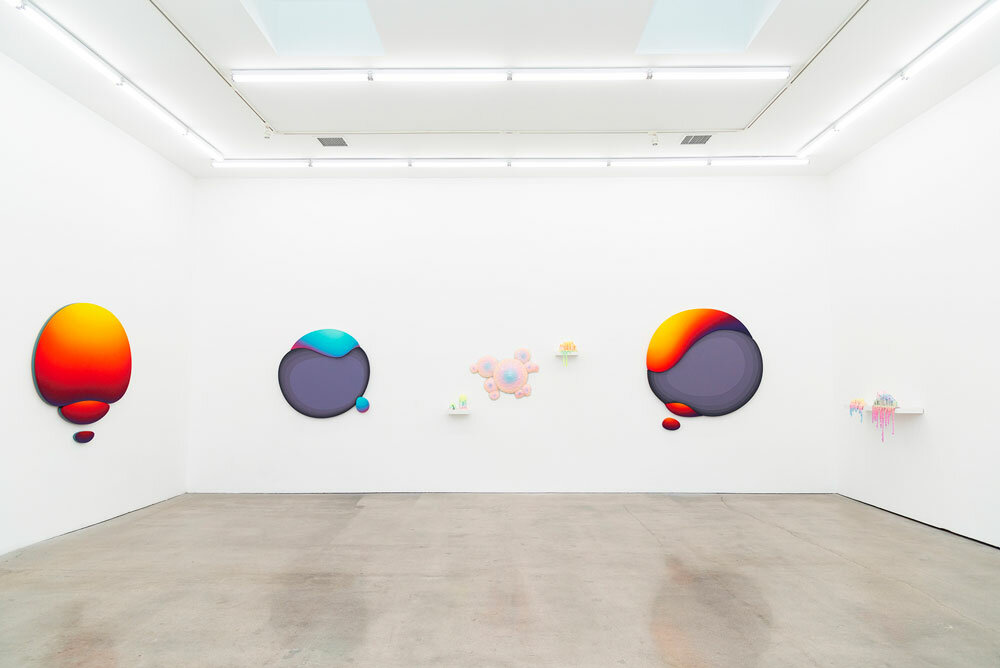
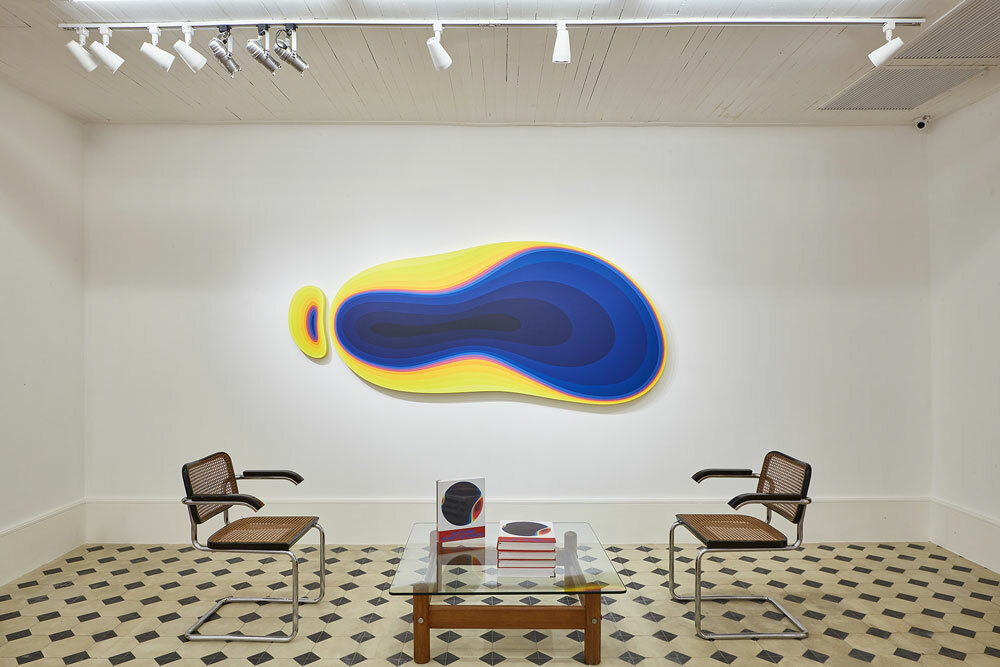
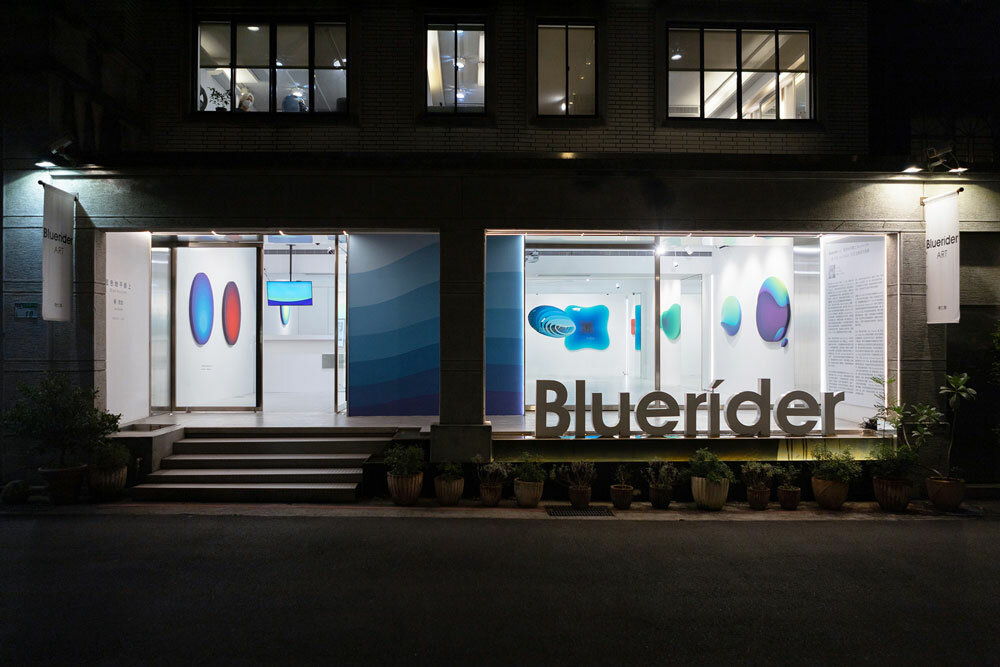
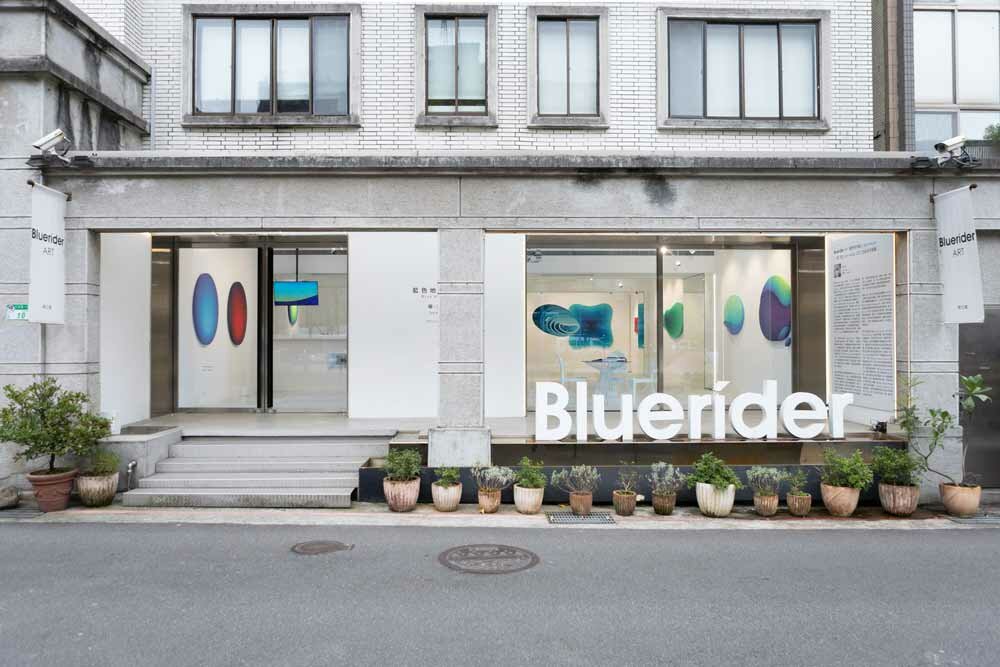
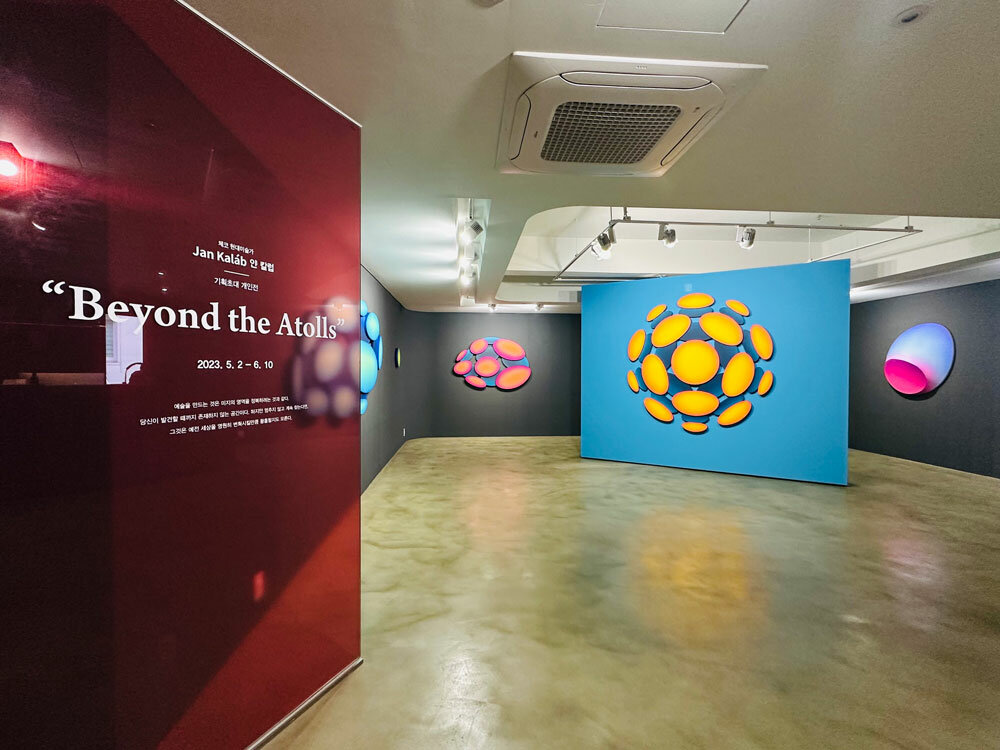
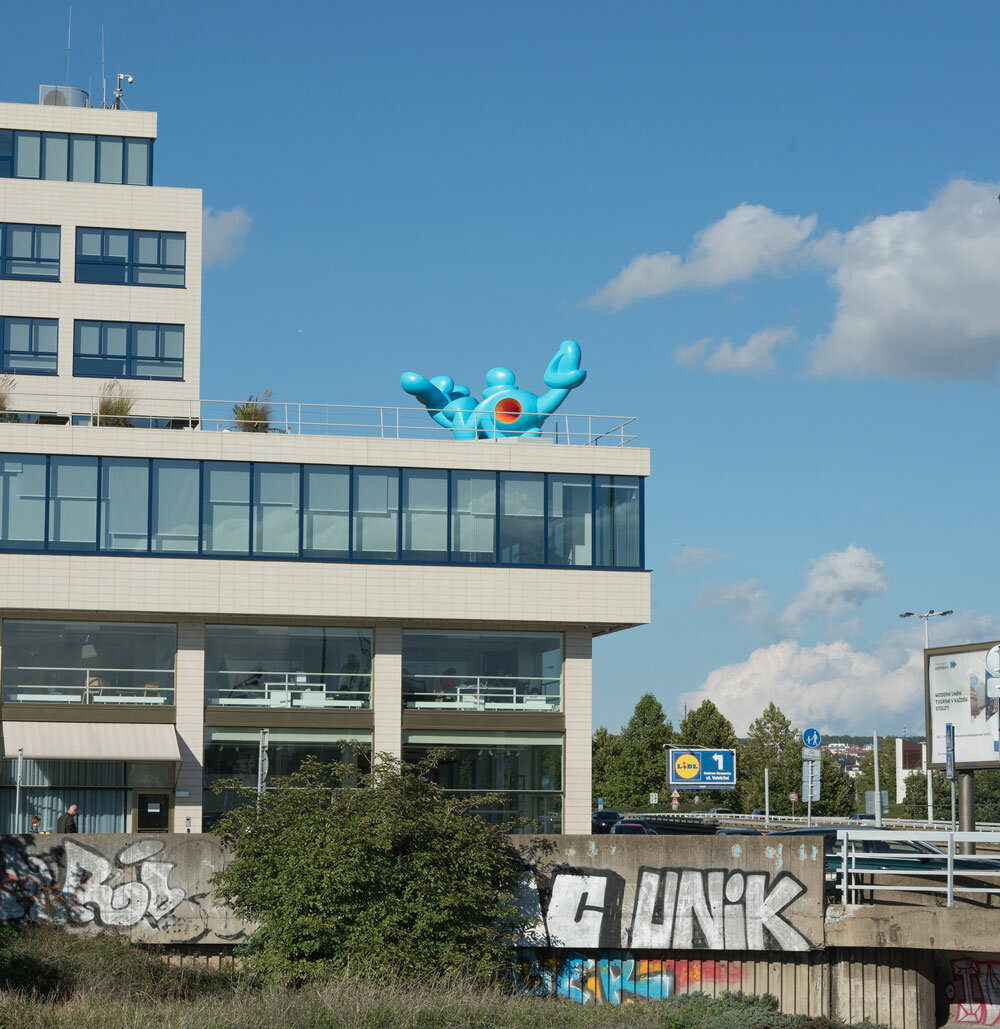
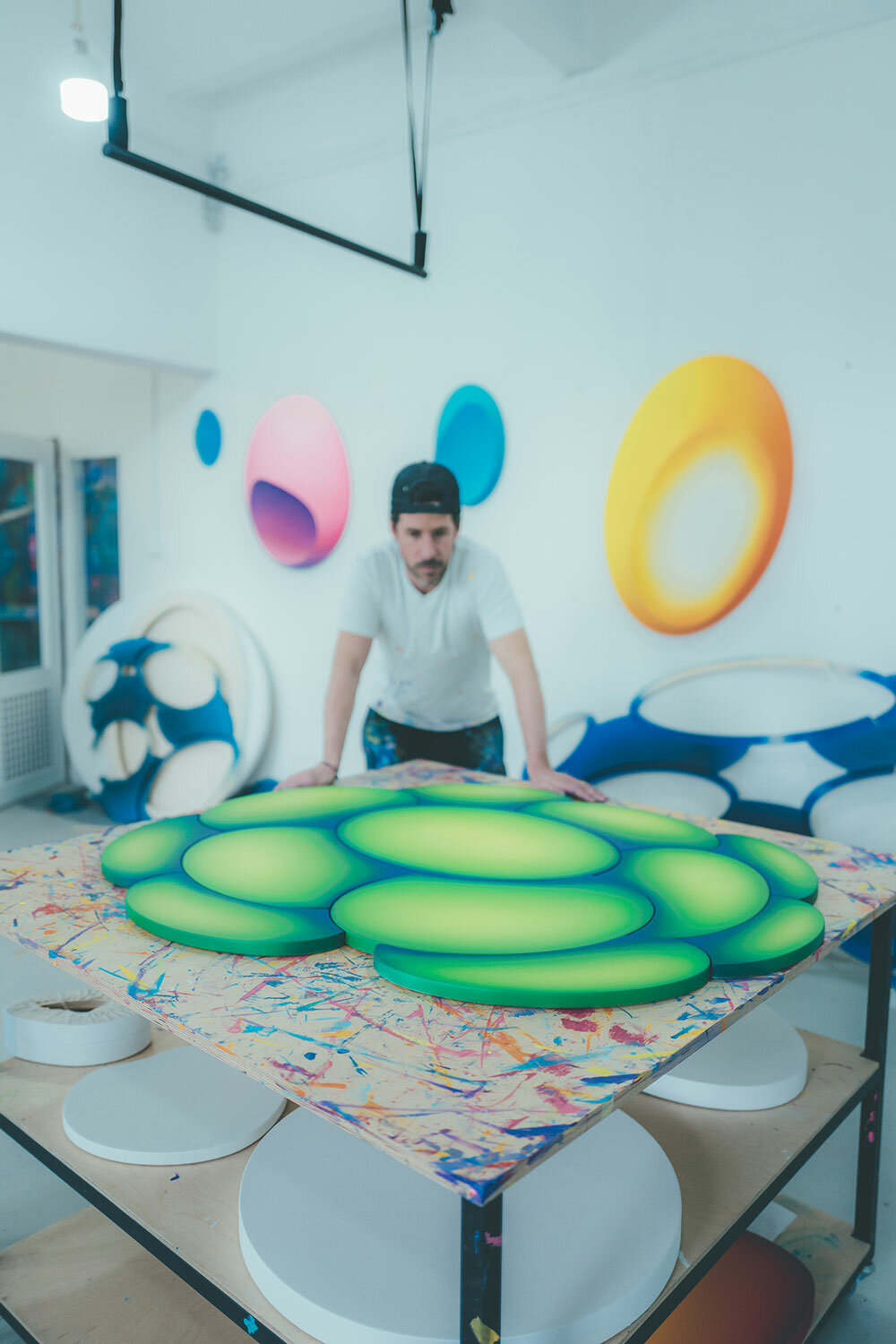
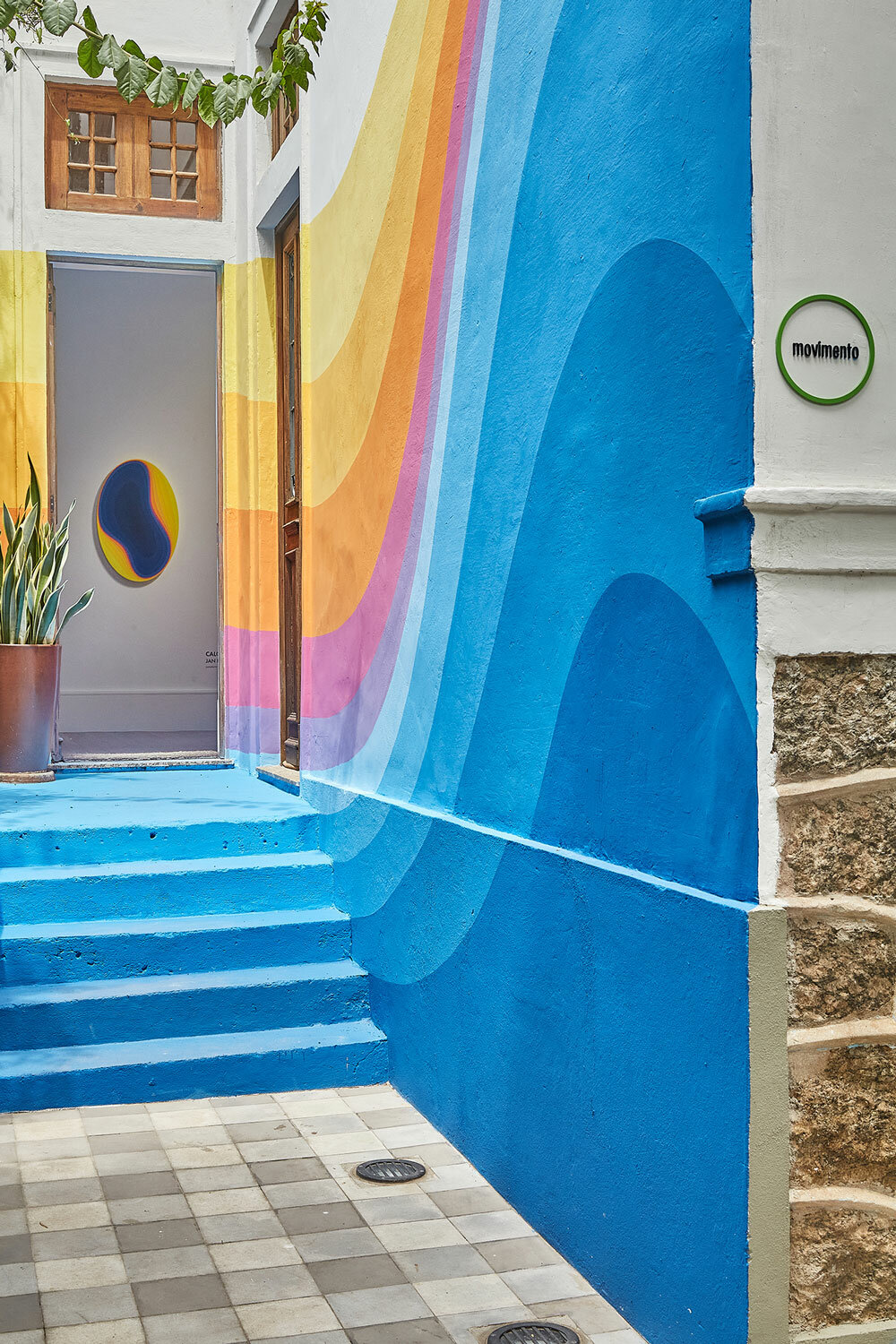
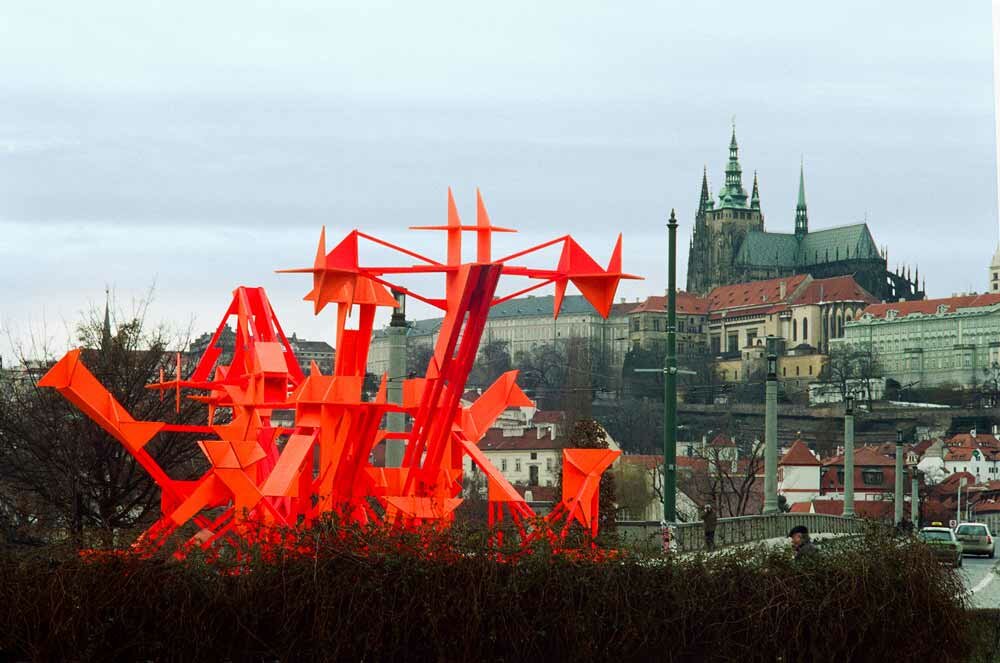
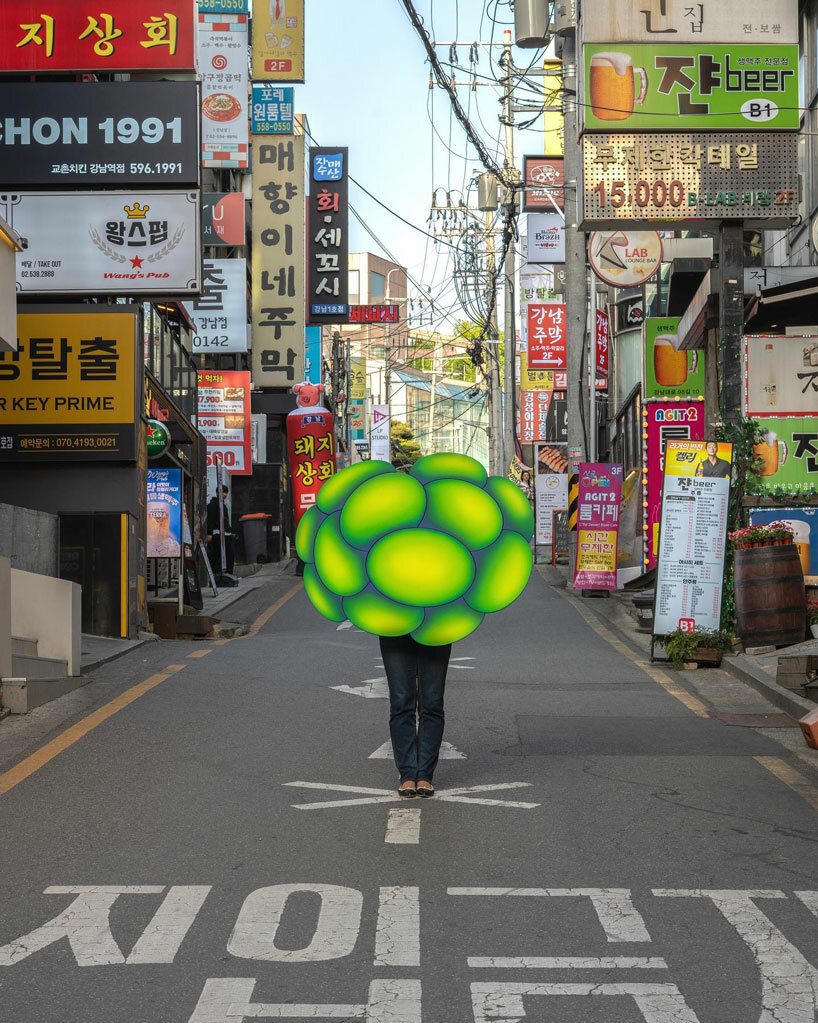
2023, Sungreen Coral 423 in the streets of Gangnam station, photo by Jan Kaláb Studio
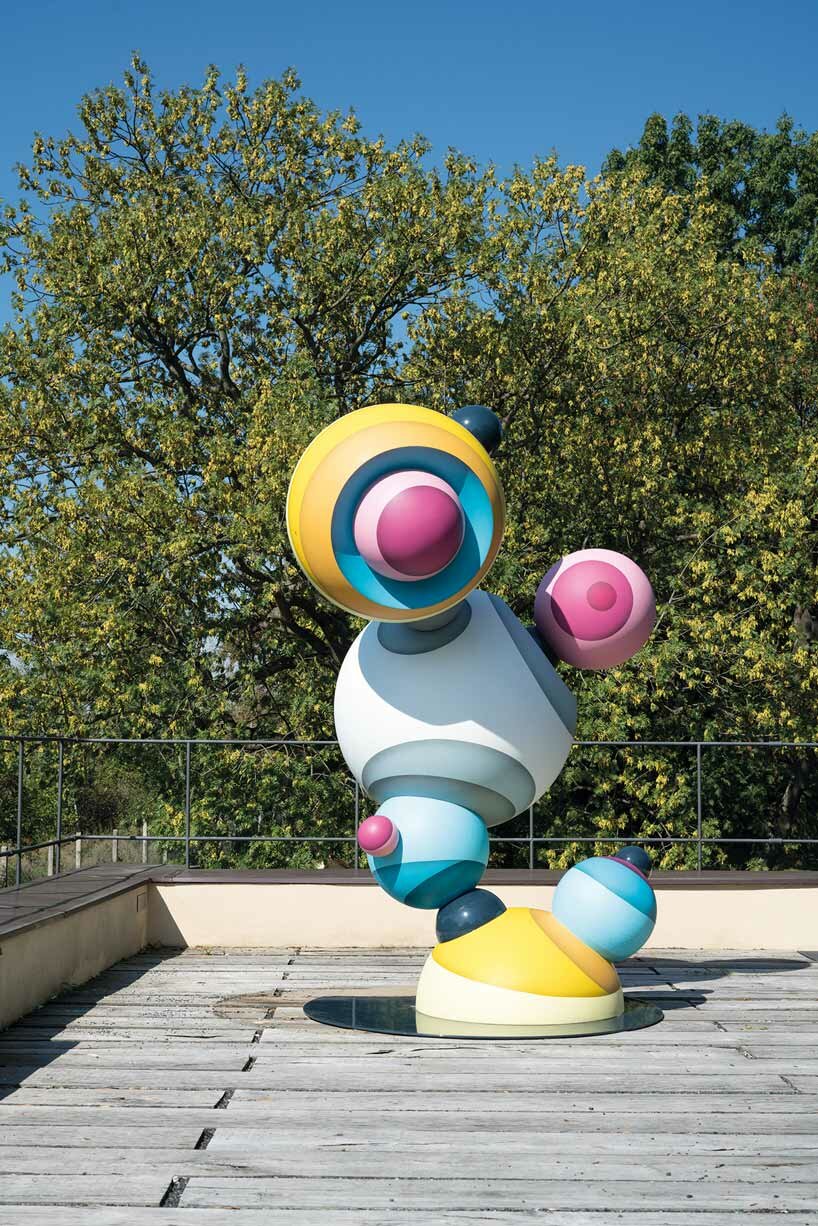
2015 Cosmos, fibreglass resin, photo by Jan Kaláb
ART INTERVIEWS (113)
STREET ART (245)
PRODUCT LIBRARY
a diverse digital database that acts as a valuable guide in gaining insight and information about a product directly from the manufacturer, and serves as a rich reference point in developing a project or scheme.

